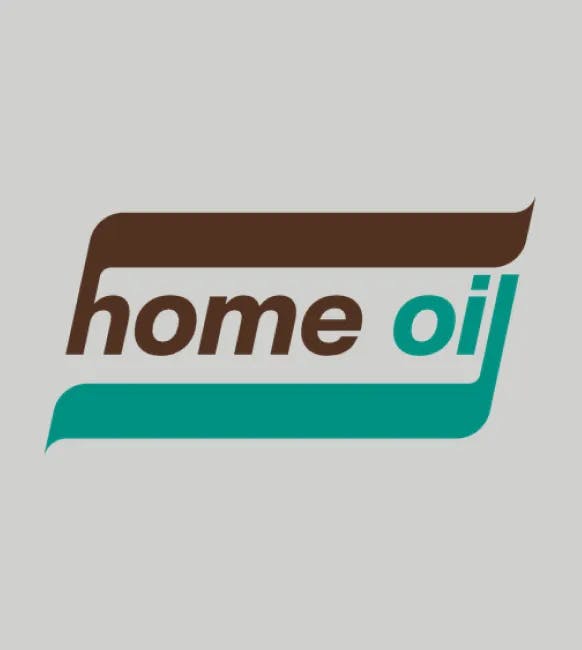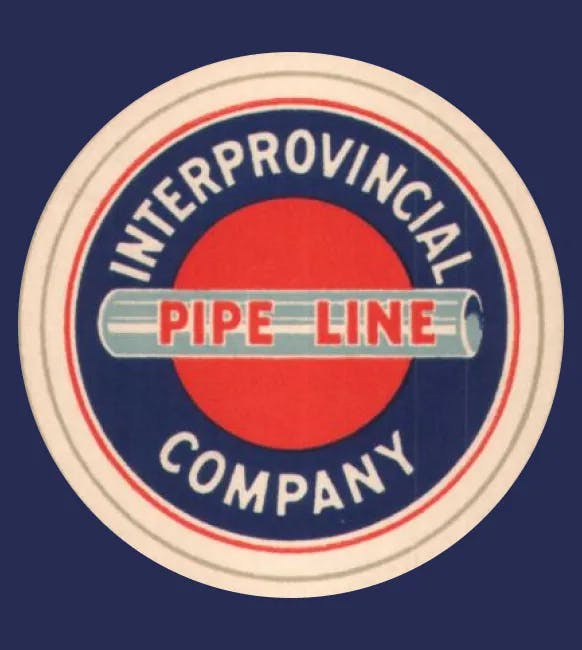1847
1887
1898
1911
1914
1928
1929
1938
1942
1943
1946
1947
1949
1953
1957
1960
1963
1969
1976
1977
1984
1985
1986
1988
1989
1991
1992
1993
1994
1995
1996
1997
1998
1999
2000
2001
2002
2004
2005
2006
2007
2008
2009
2010
2011
2012
2013
2014
2015
2016
2017
2018
2019
2020
2021
2022
2023
2024
2025
Looking Ahead
1847
Consumers' Gas Company is founded in Toronto.
The company plays a crucial role in providing gas for street lighting and indoor illumination.

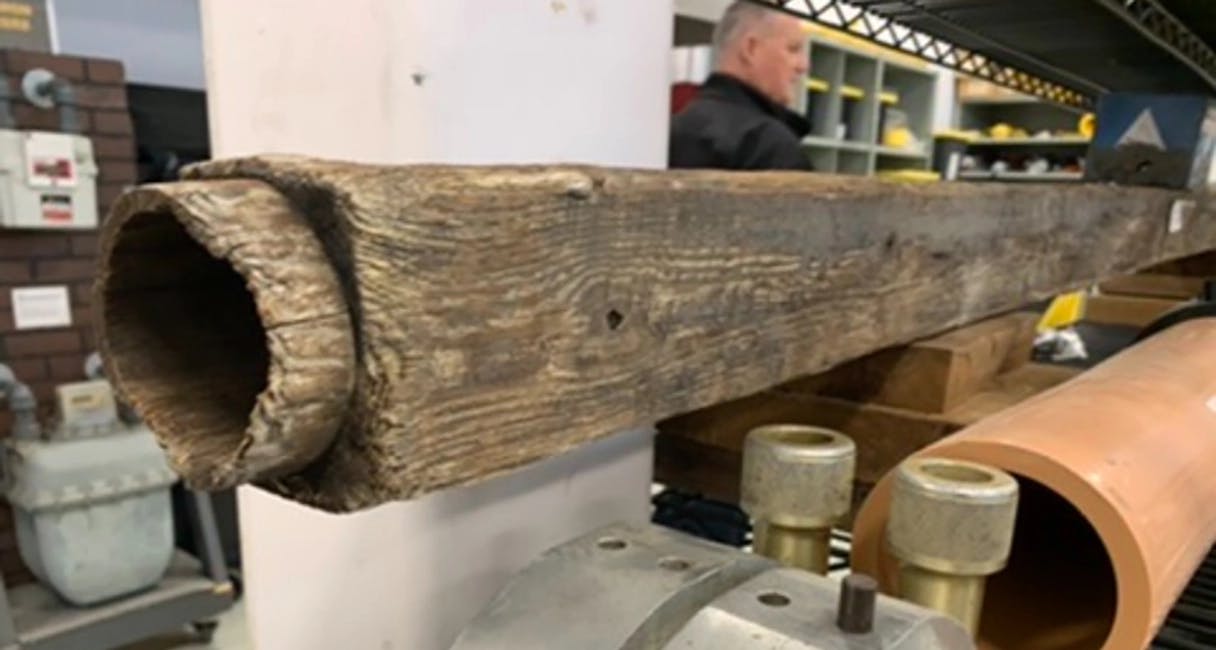
Some gas lines were made of hollowed-out pine logs, a common practice in the early and mid-1800s, including this fragment now on display in Markham, ON.
1887
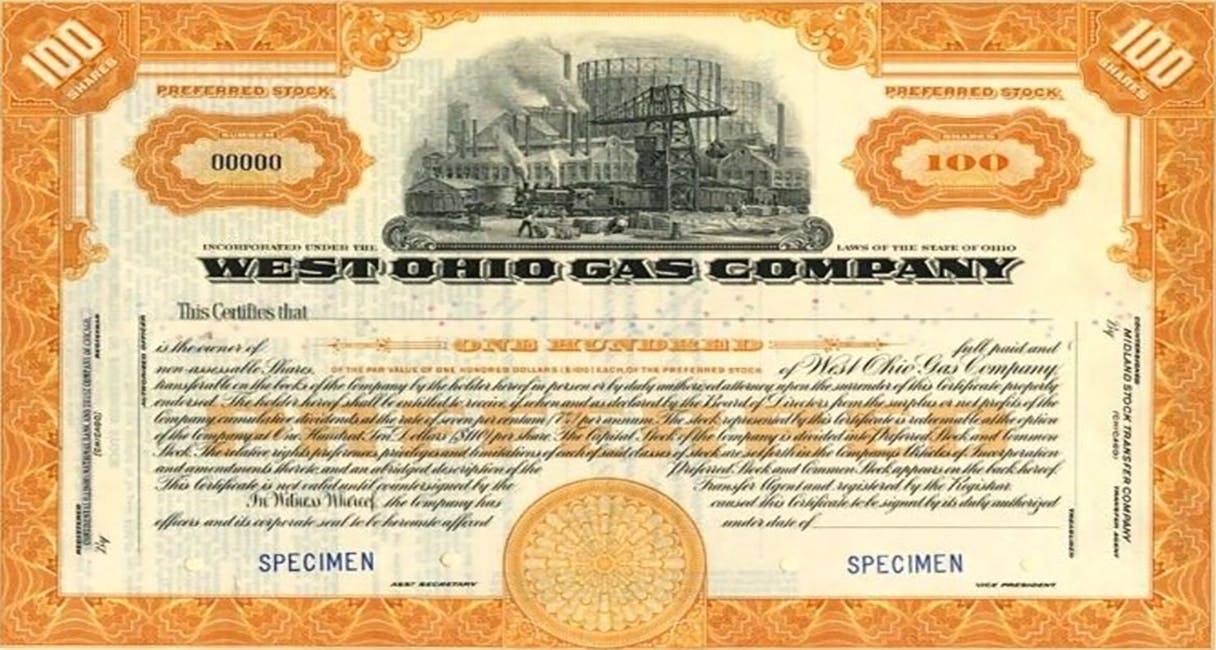
1898
The East Ohio Gas Company is established
After earning a franchise in 1902 to supply natural gas to Cleveland, by 1905 the utility has 30,000 residential and 280 business customers.
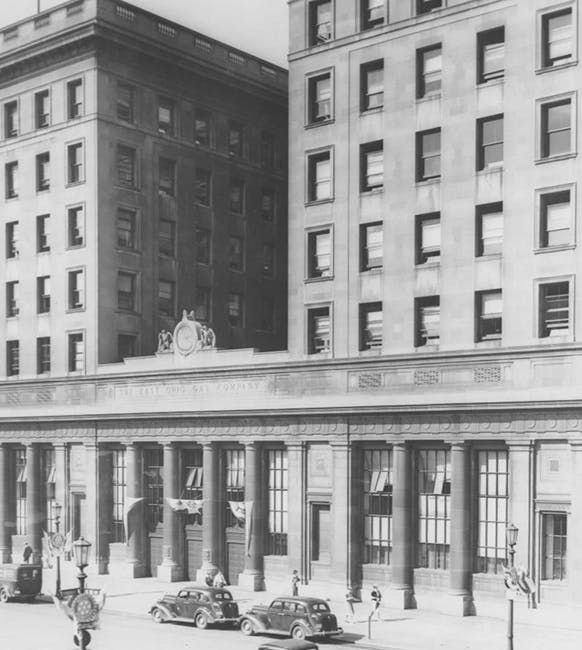
1911
The Union National Gas Company of Canada
Union Gas Limited forms as The Union National Gas Company of Canada, merging Volcanic Oil and Gas Company, United Fuel Supply Company Ltd., and Ridgetown Fuel Supply Company.
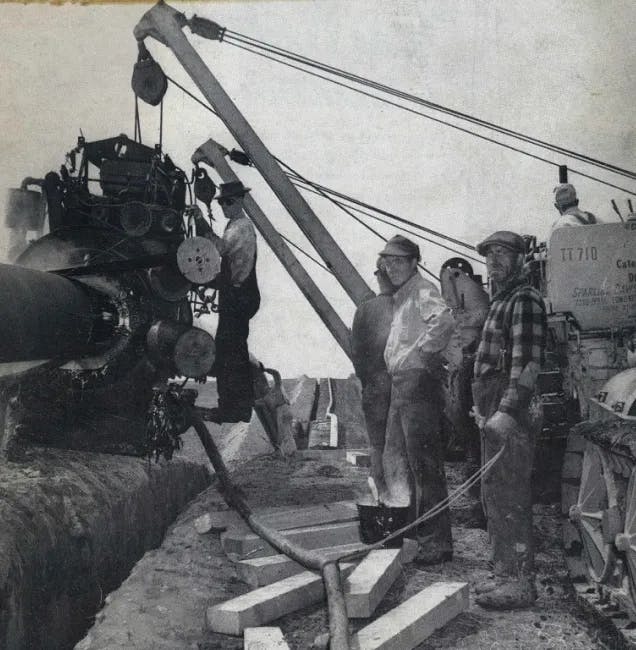
1914
Utah Gas & Coke Co.
is founded in Salt Lake City, touting “smokeless gas coke” for residential heating.
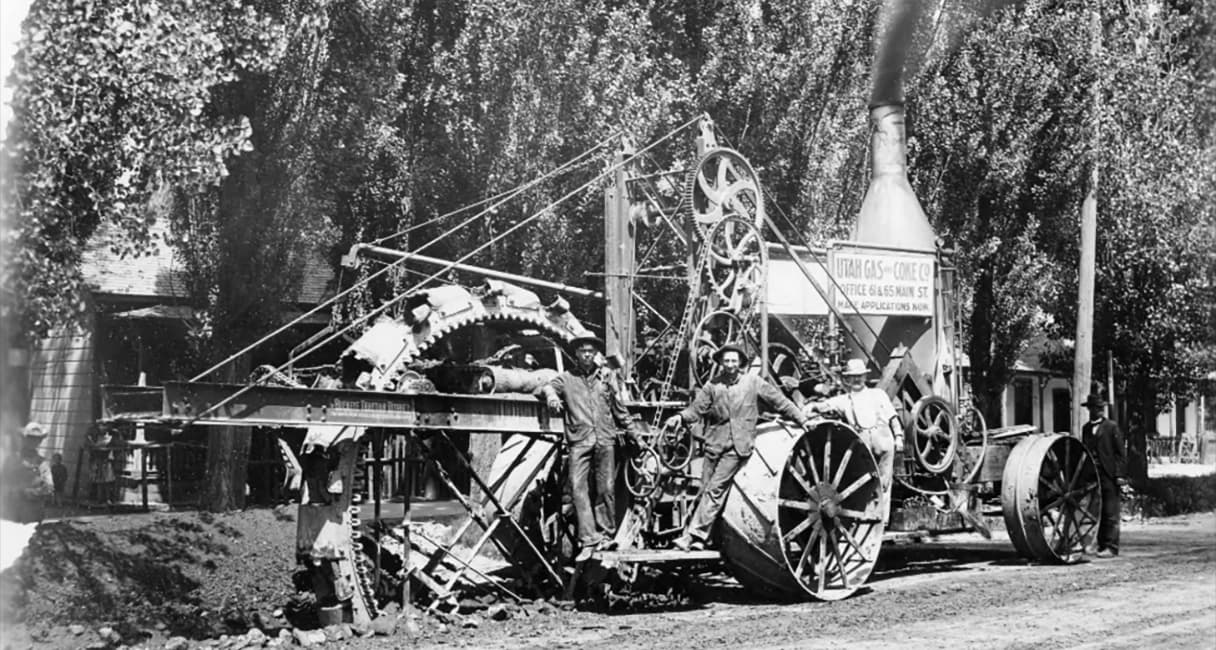
1928
Utah Gas & Coke becomes Mountain Fuel Supply Co.,
whose Herculean 1929 pipeline project brings Wyoming gas to the Salt Lake City region. Over the decades, Mountain Fuel will undertake significant gas exploration in the Rocky Mountains, including drilling the Church Buttes No. 1 well in 1946.
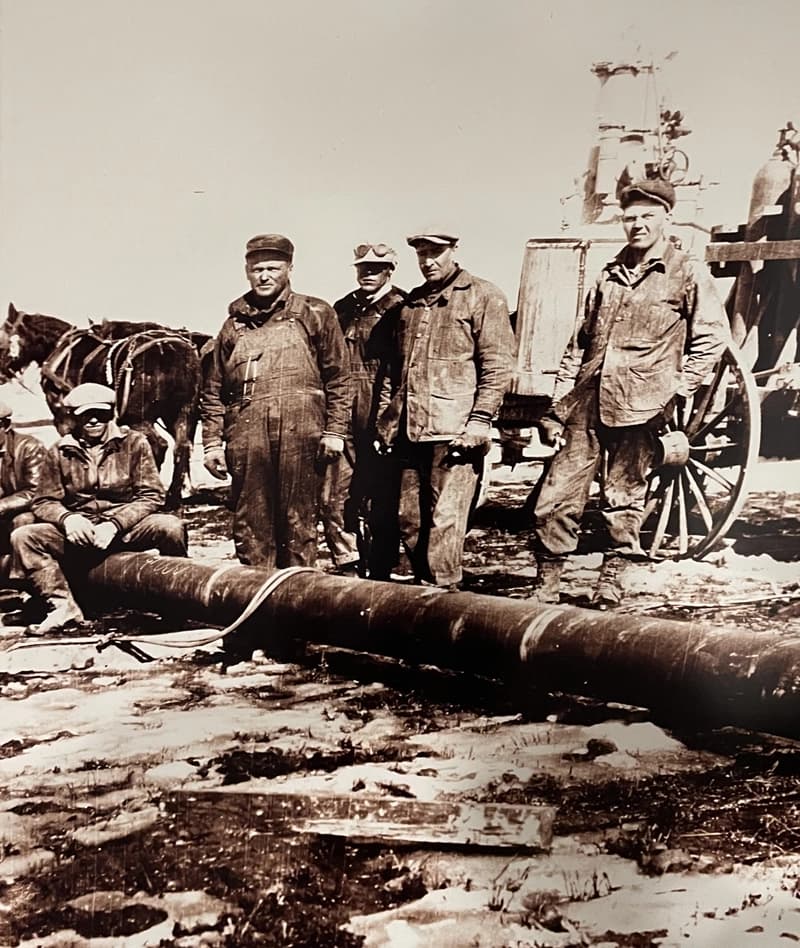
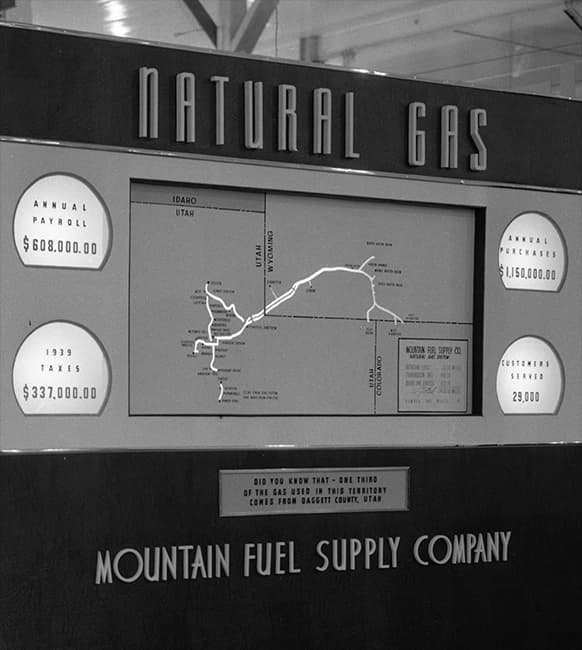

1929
Panhandle Eastern Pipe Line Company
enters service, and begins supplying gas to the Midwest via an 860-mile line from southwest Kansas to the Texas panhandle.
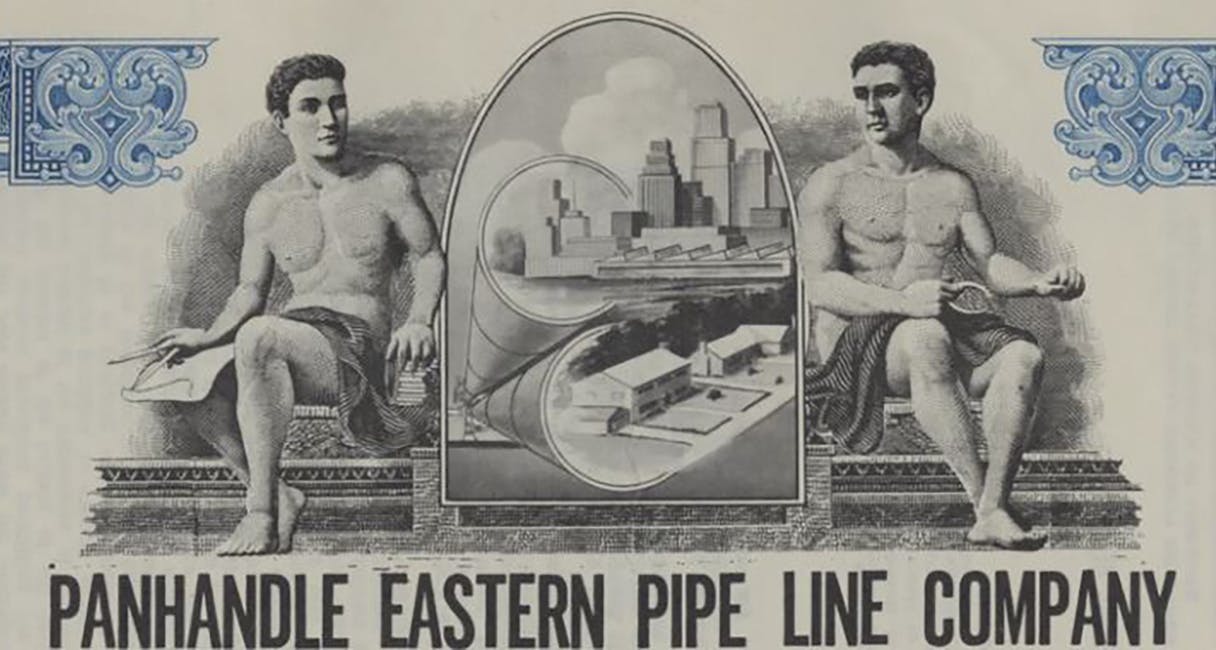
1938
The Public Service Company of
North Carolina
North Carolina
is formed as the state’s first natural gas utility in Gastonia, outside Charlotte, with 3,800 customers.

1942
War Emergency:
Two pipelines — Big Inch and Little Big Inch — totaling 1,200 miles supply oil needed during WWII. Constructed from Texas to Illinois and from Indiana eastward to Philadelphia, New Jersey and New York.
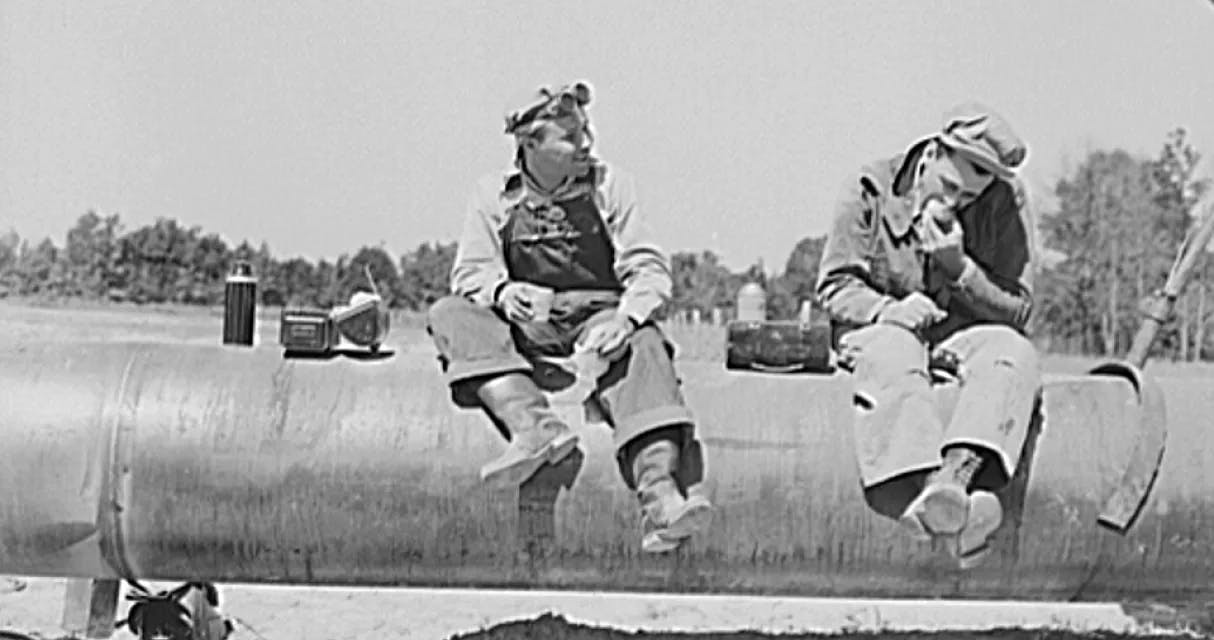
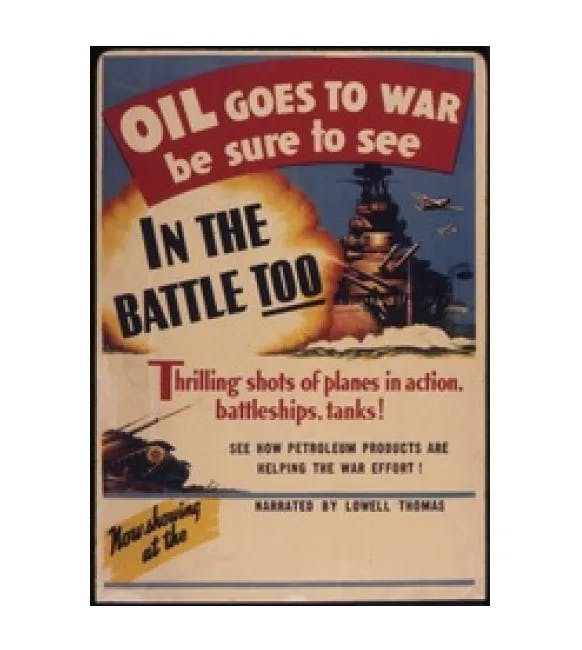
"The most amazing government-industry cooperation ever achieved."
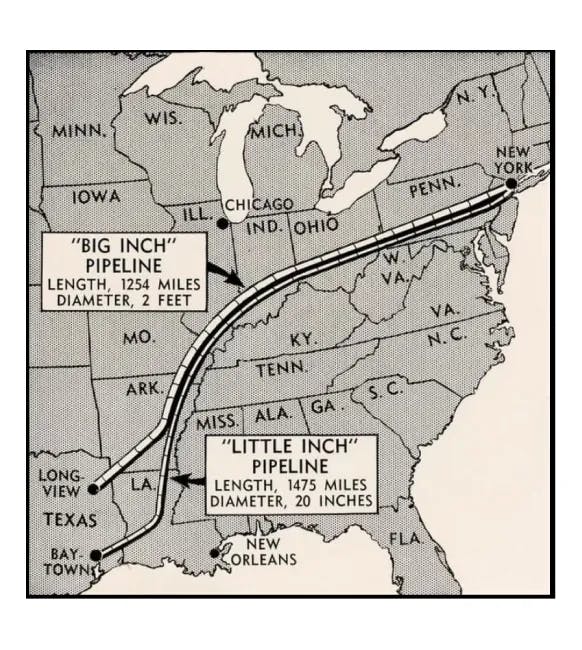
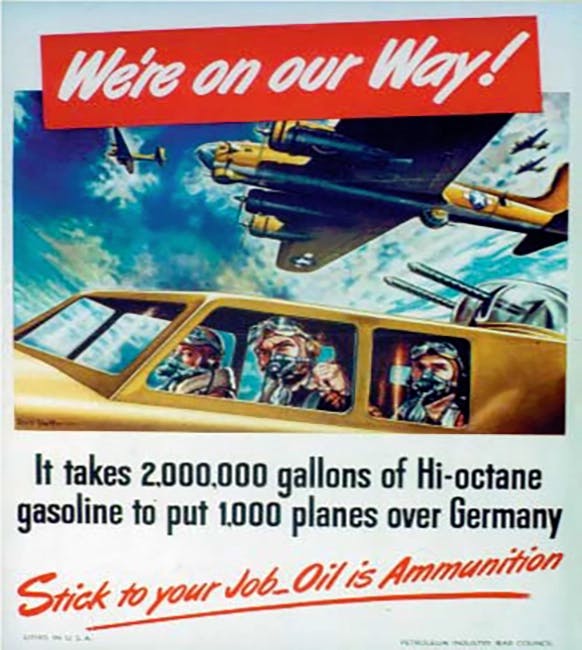
With oil serving a critical role in the war effort, and German U-boats sinking ships carrying petroleum products to the East Coast, the pipelines’ rapid construction would inspire the quip: “The war was won by an Inch.”
1943
Consolidated Natural Gas goes independent
Consolidated Natural Gas and its businesses, including The East Ohio Gas Company, are spun off as a privately held, independent company from Standard Oil (New Jersey).
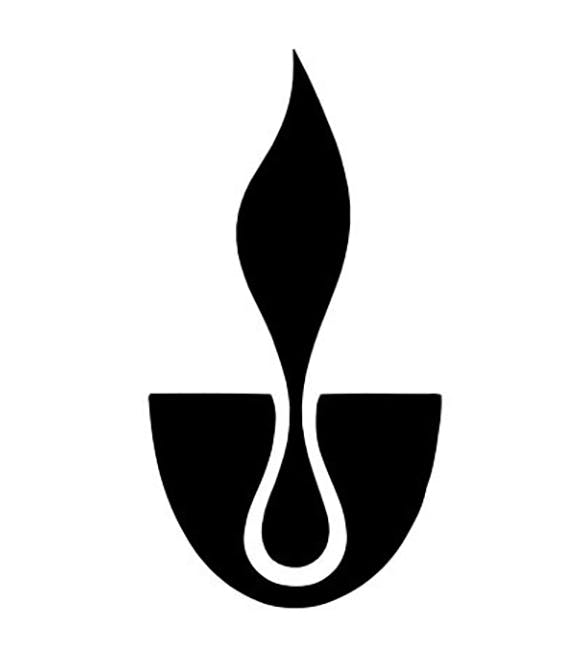
1946
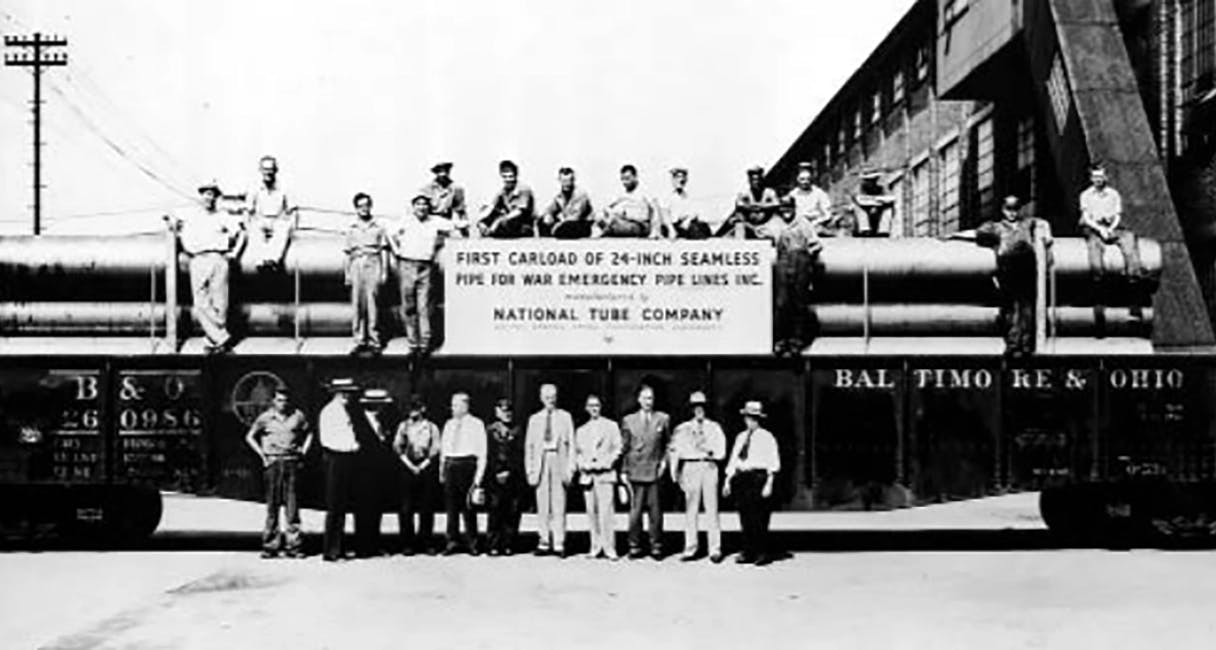
Big Inch, Little Big Inch to deliver natural gas
After the Second World War ends, the War Assets Administration determines the lines are viable for natural gas transmission and offers them up at auction.
1947
Texas Eastern Transmission Corporation
is formed to purchase the Big and Little Big Inch lines, which have moved natural gas ever since.
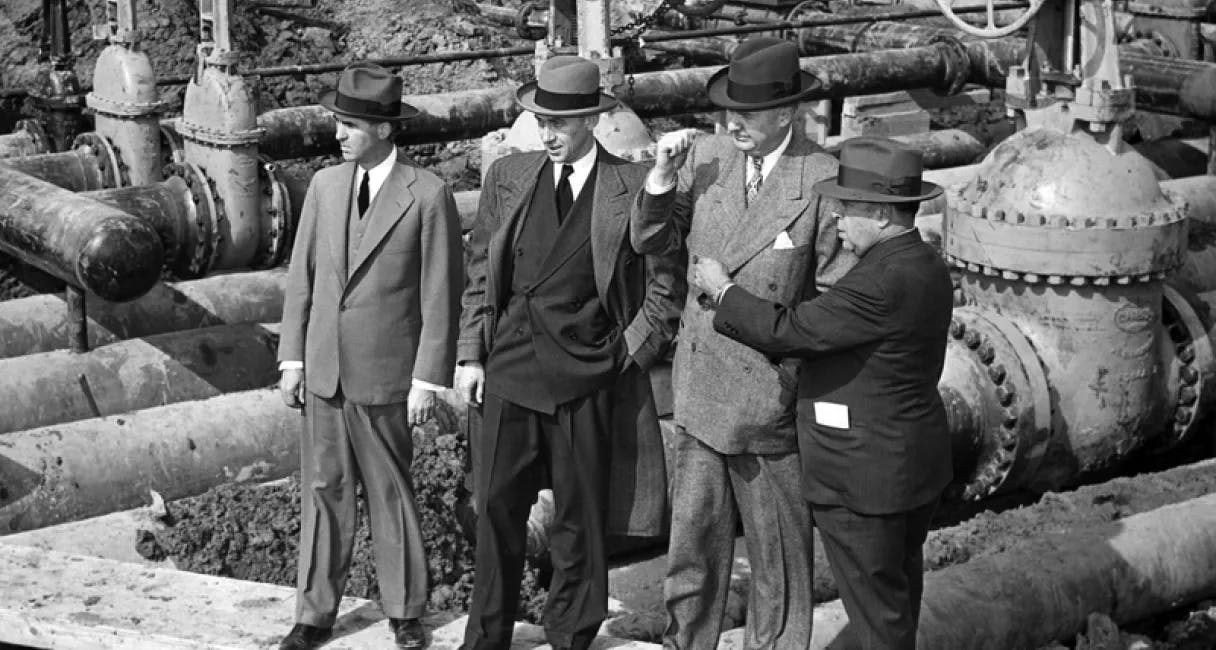
1949
Interprovincial Pipe Line Company
starts work on the first oil export pipeline from Canada to the U.S.
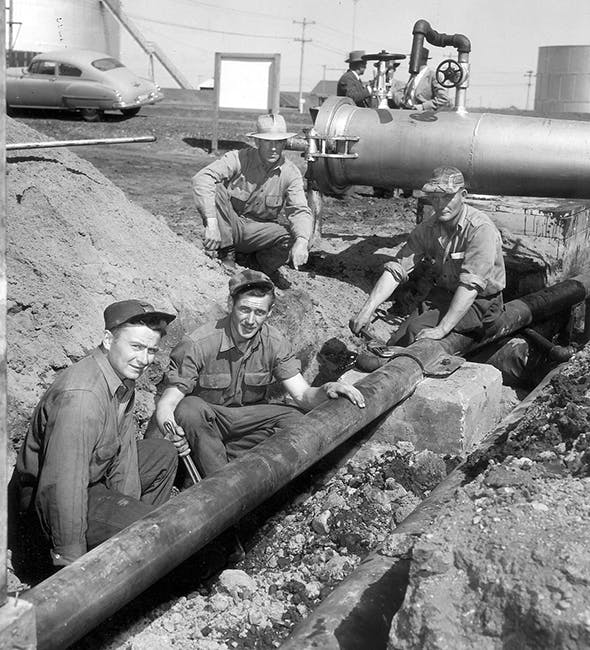
Westcoast Transmission Company
is incorporated in British Columbia through a Special Act of Parliament.
Incorporated in April 1949 through a charter from the Canadian federal government, IPL completes this inaugural line in late 1950, and oil begins to flow from Edmonton, AB to Superior, WI.
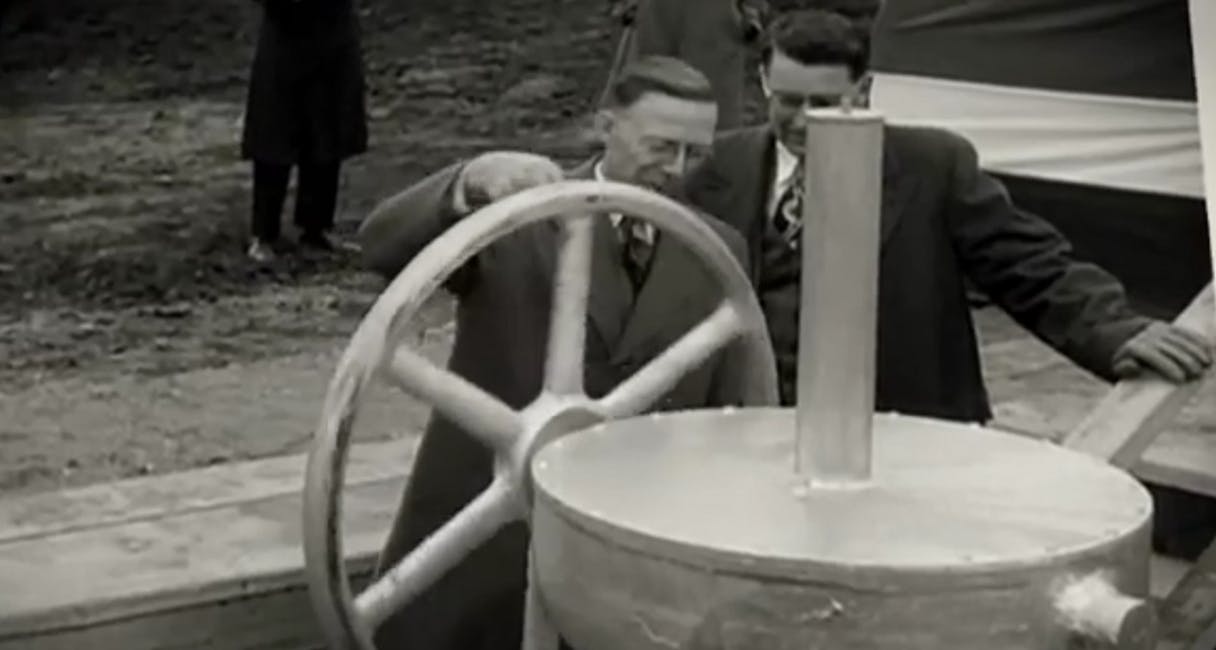
1953
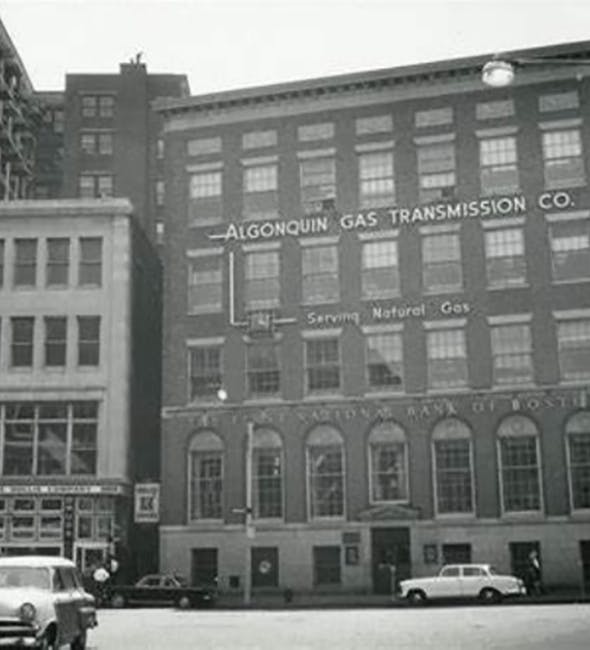
The Algonquin Gas Transmission Company
enters service, delivering Gulf Coast natural gas to New England customers.
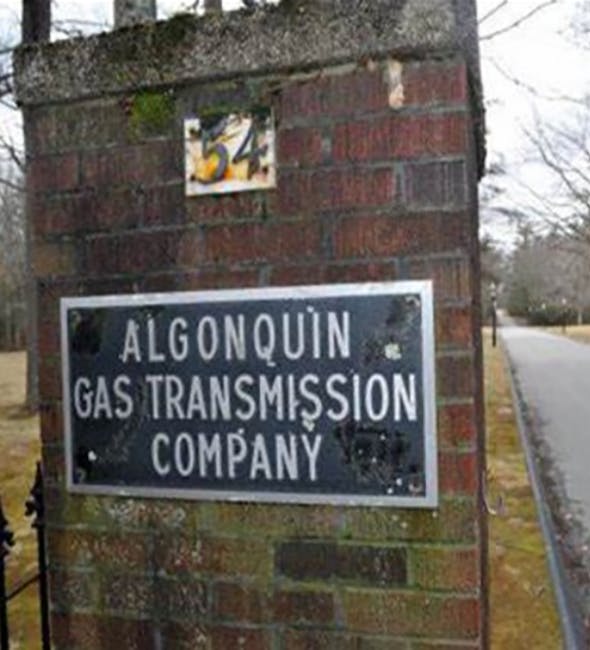
IPL's Line 5
is built from Superior to Sarnia, ON, removing oil-carrying tanker traffic from the Great Lakes.
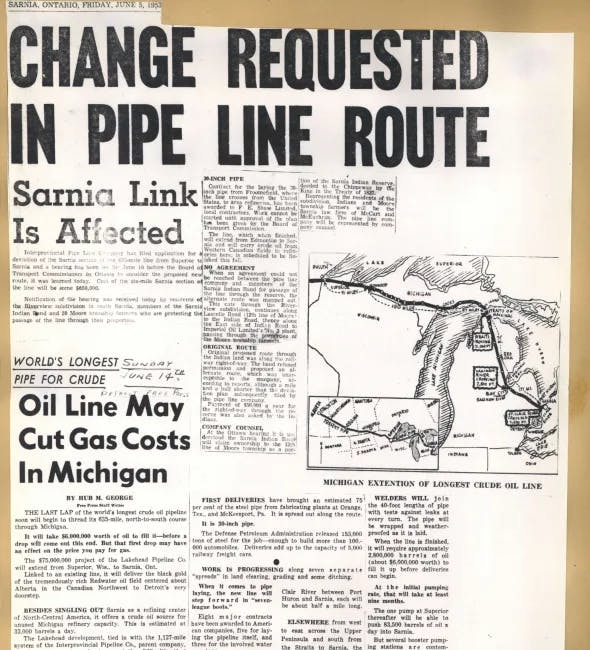
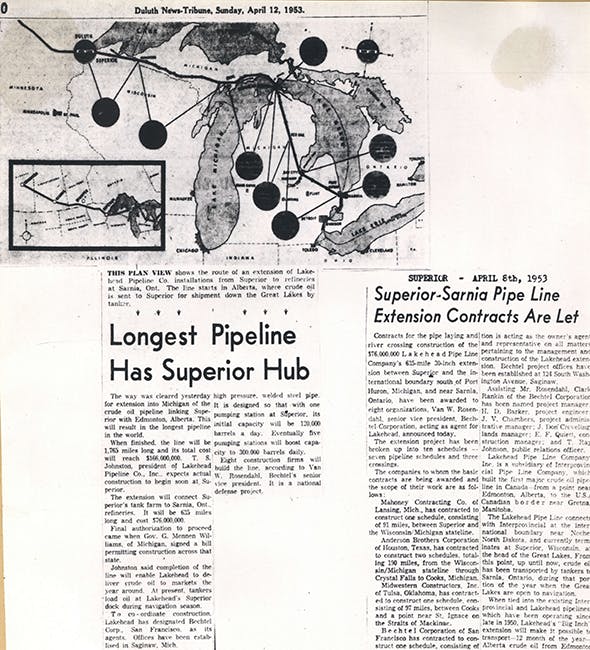
1957
Westcoast Transmission Company
begins transporting natural gas from NE British Columbia to the Canadian/U.S. border. This transmission pipeline has served as the backbone of the BC gas industry ever since. WTC later becomes part of Spectra Energy.
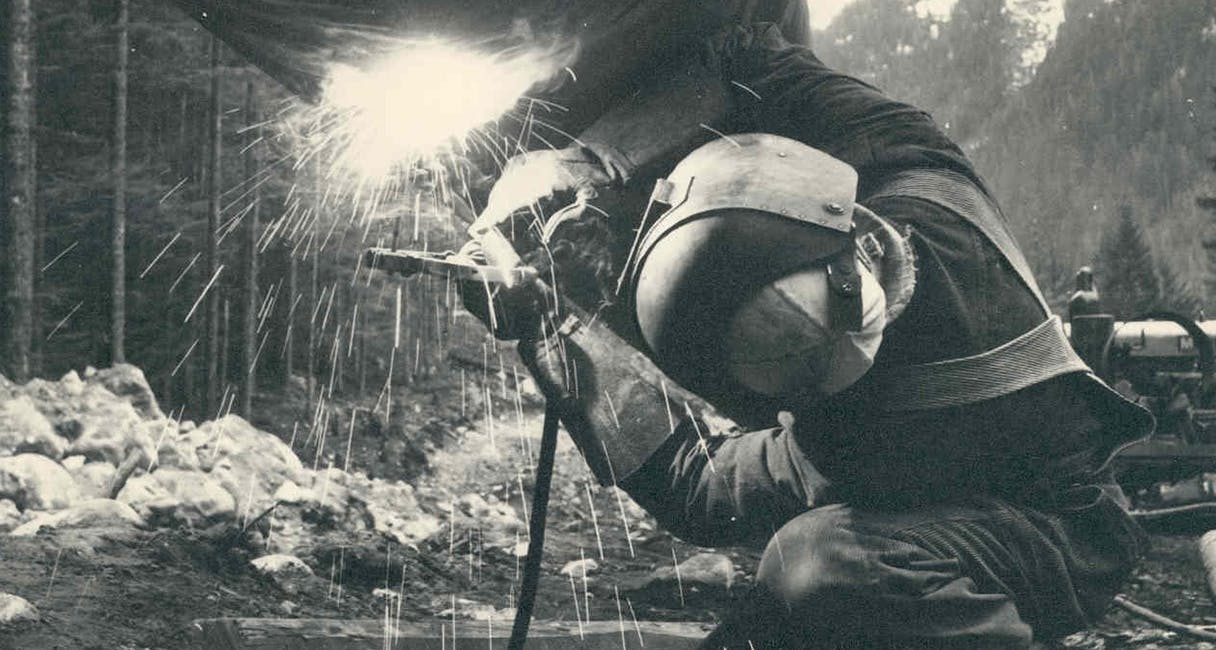
1960
Texas Eastern
begins developing technology to run first in-line inspection tool under the Ohio River.
These gas piping standards eventually become federal regulation in 1970.

1963
Interprovincial Pipe Line
becomes North America's largest crude oil carrier on a barrel-mile basis.
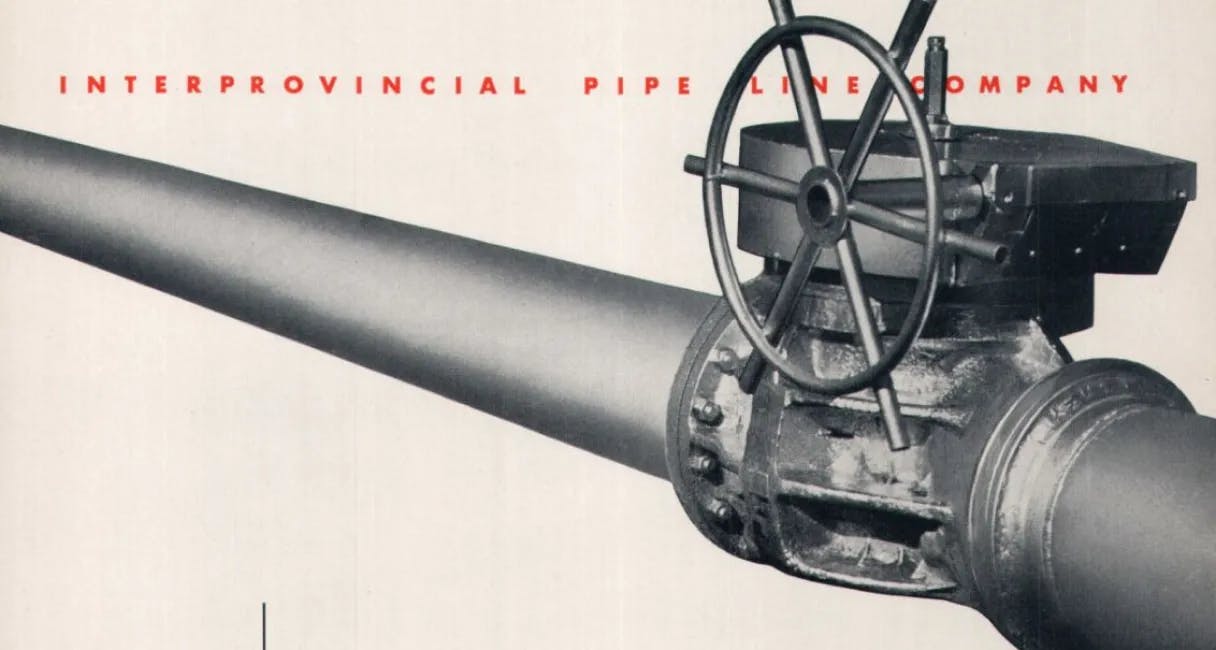
1969
Ohio utilities merge
CNG merges the West Ohio Gas Company, of Lima, with its sister utility The East Ohio Gas Company of Cleveland under the East Ohio Gas name.
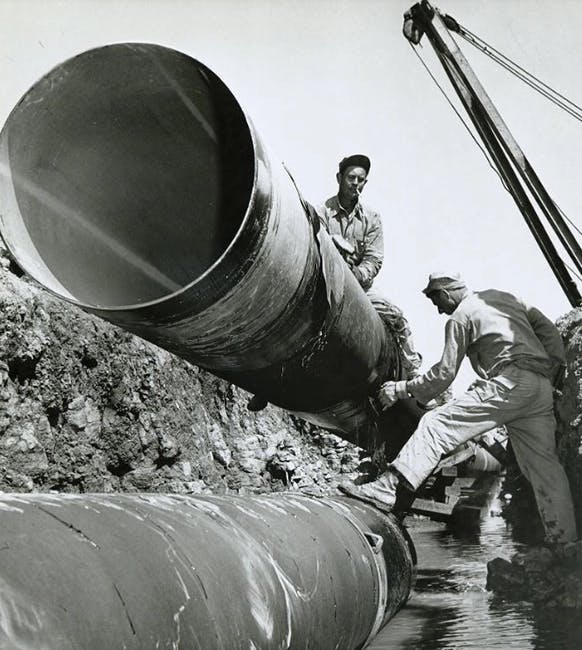
1976
The global oil crisis of the 1970s and skyrocketing commodity prices spur the construction of IPL's Line 9,
completed under what seemed impossible conditions to ensure Canadian energy self-reliance.
The line is built from Sarnia to Montreal, QC after consultation with 2,200 landowners and 95 municipalities, governments and agencies.
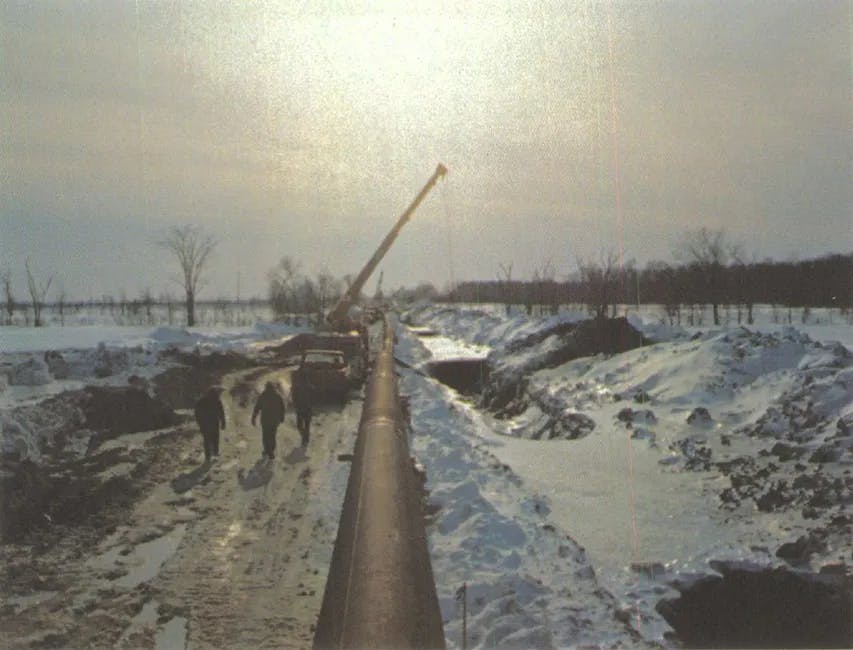
1977
The global oil crisis and OPEC Arab members’ oil embargo against the U.S. spur the signing of the Canada-United States Transit Pipelines Treaty, ensuring the uninterrupted flow of oil by pipeline between the two countries.
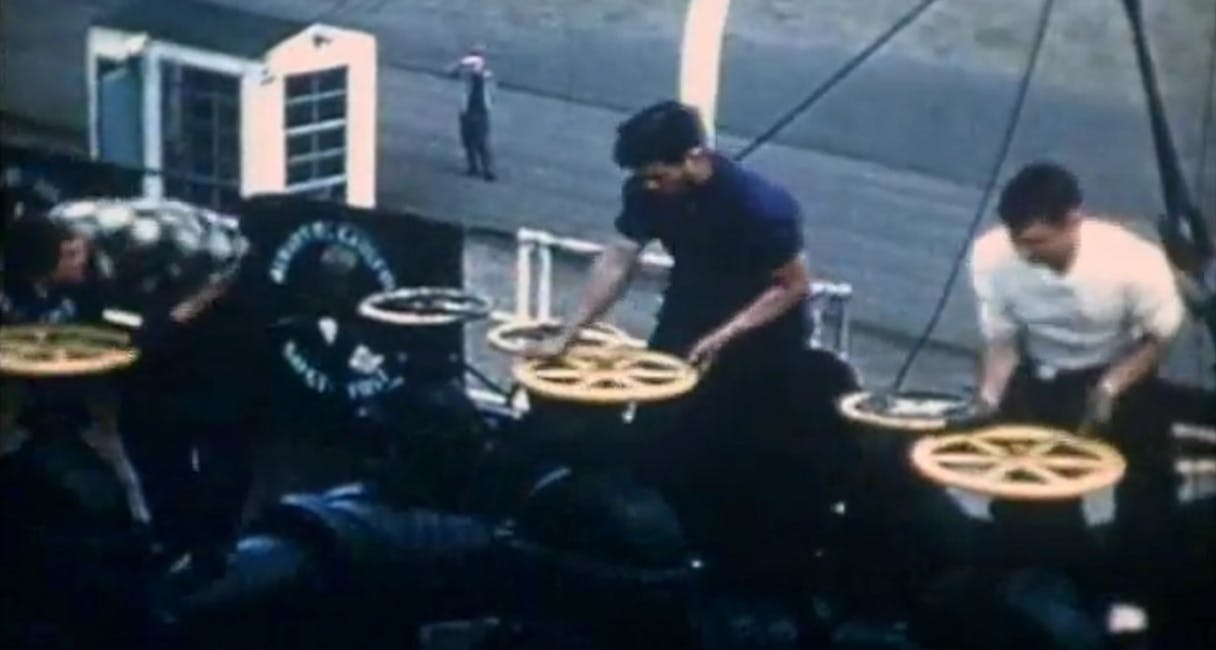
1984

The Questar Corporation
is established as a parent holding company for Mountain Fuel Supply, and in 1998 is renamed the Questar Gas Company.
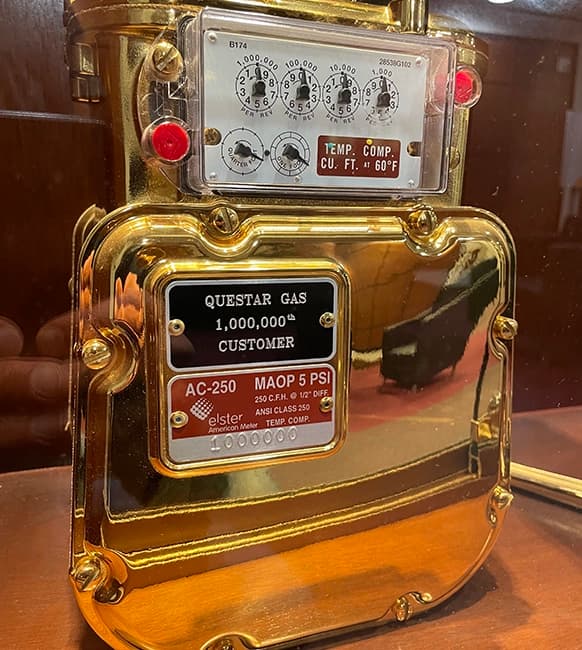
1985
Interprovincial Pipe Line's Norman Wells Pipeline
is completed as North America's first underground pipeline to be built in discontinuous permafrost, linking the Norman Wells pipeline in the Northwest Territories to the Rainbow Pipeline system in Zama, AB.
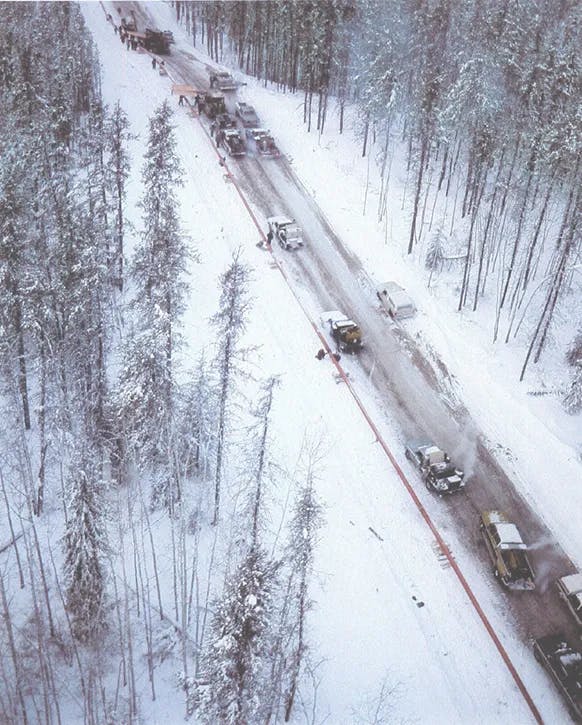
1986
1988
Interprovincial Pipe Line becomes Interhome Energy Inc.
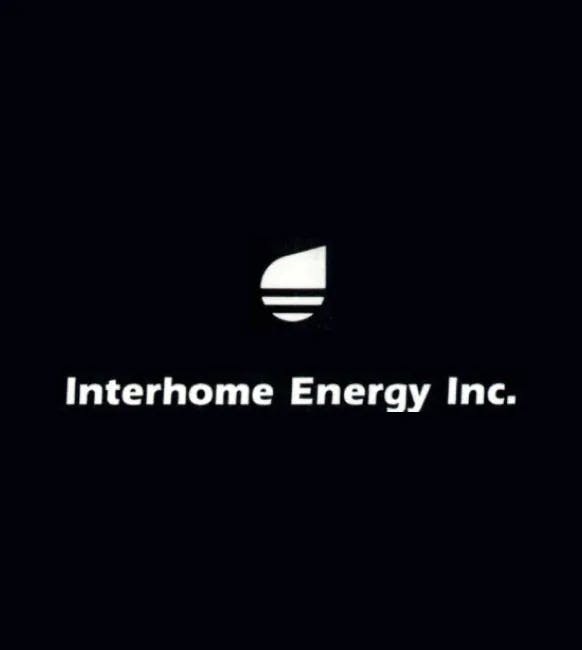
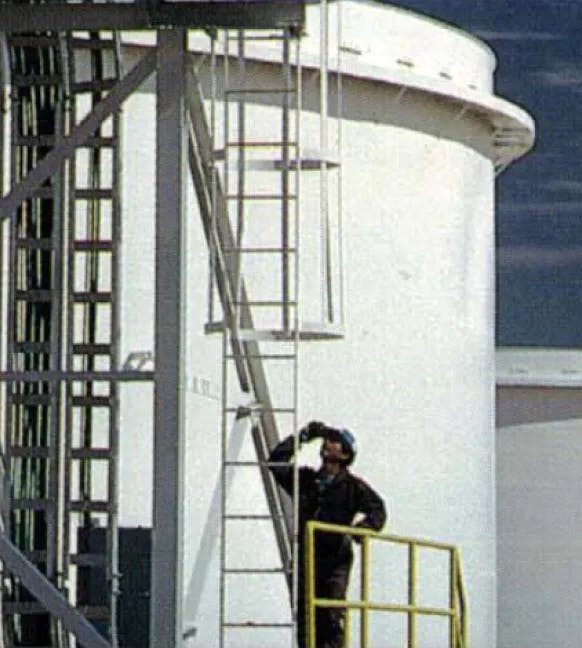
1989
Texas Eastern and Panhandle Eastern merge to become PanEnergy
The merger creates the second-largest national gas pipeline system in the U.S., with PanEnergy now owning and operating four major pipelines.
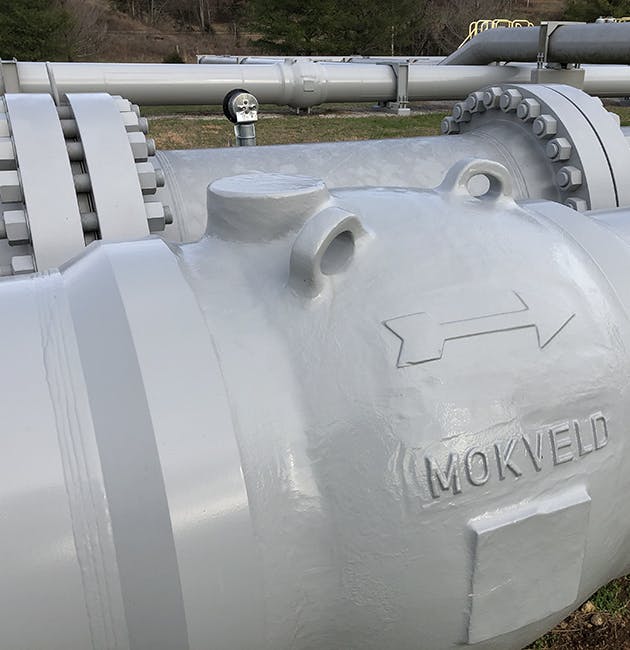
1991
Interhome splits to become New Home Oil Company Ltd. and Interprovincial Pipe Line Inc.
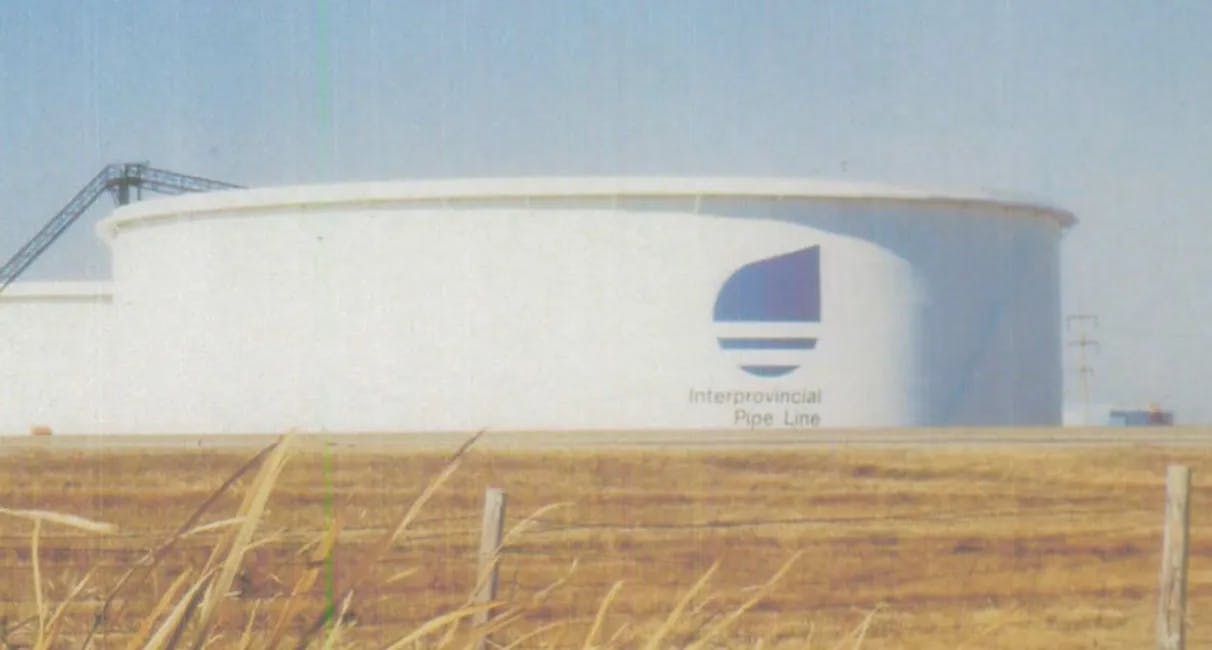
1992
Westcoast Energy acquires Union Gas,
becoming the largest natural gas distributor in Canada.
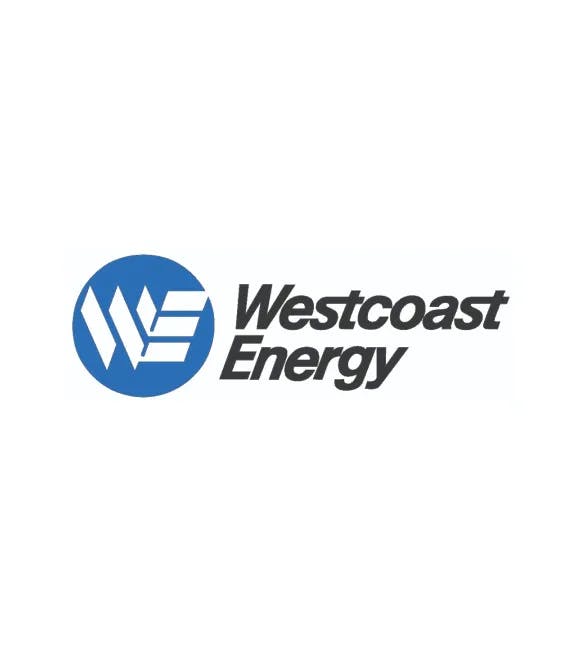
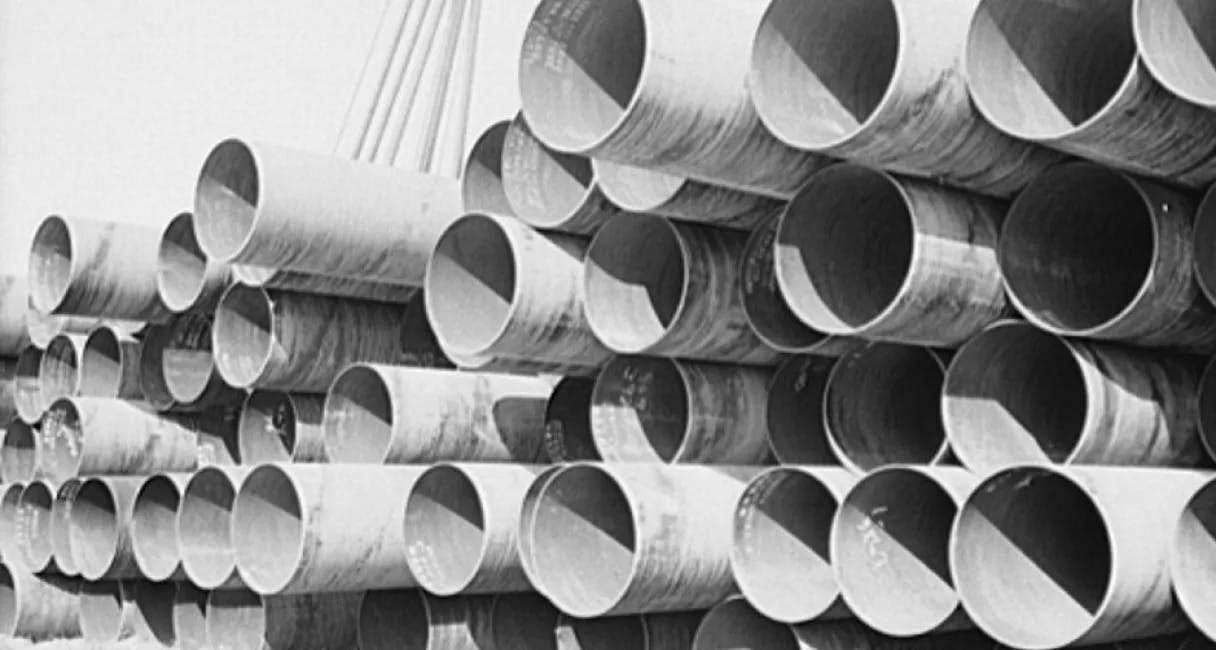
1993
Houston team members raise over US$1 million for the United Way, a tradition of giving that continues on for the next 30+ years.
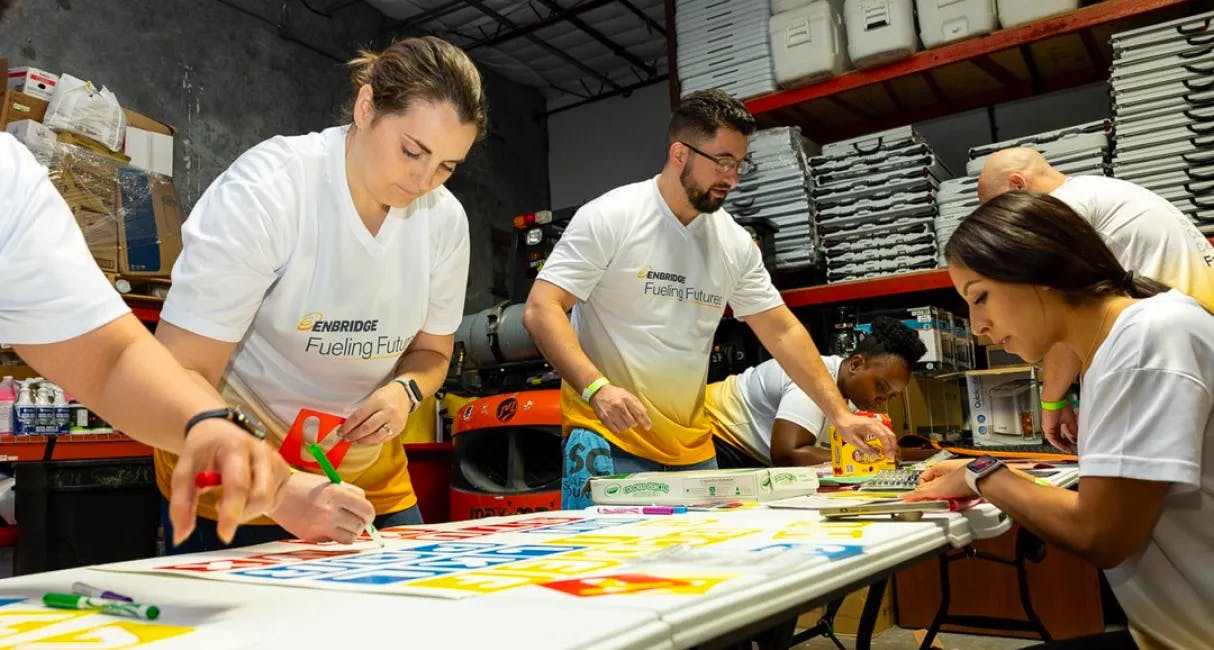
1994
Interprovincial Pipeline Inc. becomes IPL Energy, Inc.
Enbridge expands its international footprint with significant investment in Colombia's Ocensa pipeline.
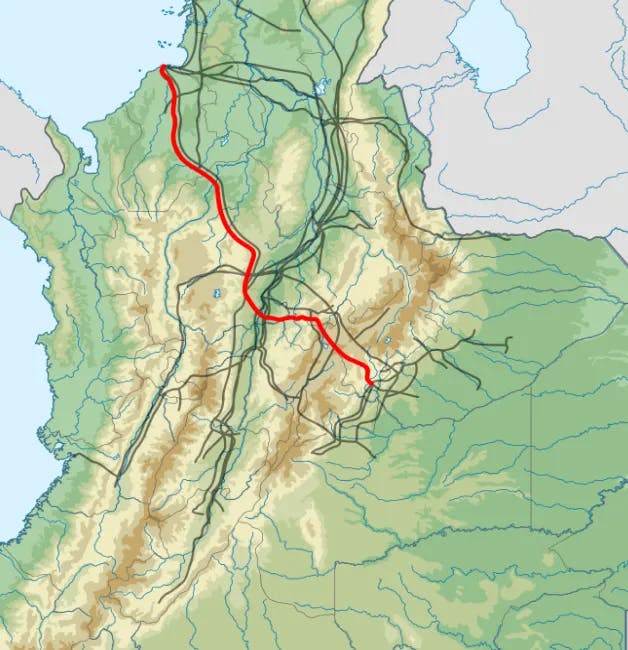
Texas Eastern Transmission's Natural Gas Pipeline explodes in Edison, New Jersey after a backhoe strikes buried pipe. The explosion investigation prompts Texas Eastern to work with the Department of Transportation's Pipeline and Hazardous Materials Safety Administration to begin monitoring excavations on pipeline rights-of-way. This work evolves to become the ubiquitous "Call before you dig" 811 system, a keystone of modern pipeline safety practices.
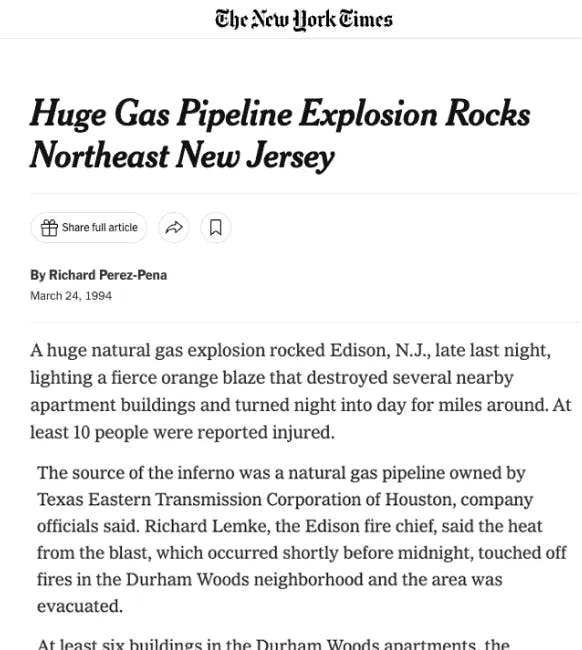
1995
IPL (now Enbridge) common shares yield a growing dividend for the first of 29 consecutive years and counting, through 2024. Over the past 29 years, Enbridge’s dividend has grown at an average compound annual growth rate of 10%.
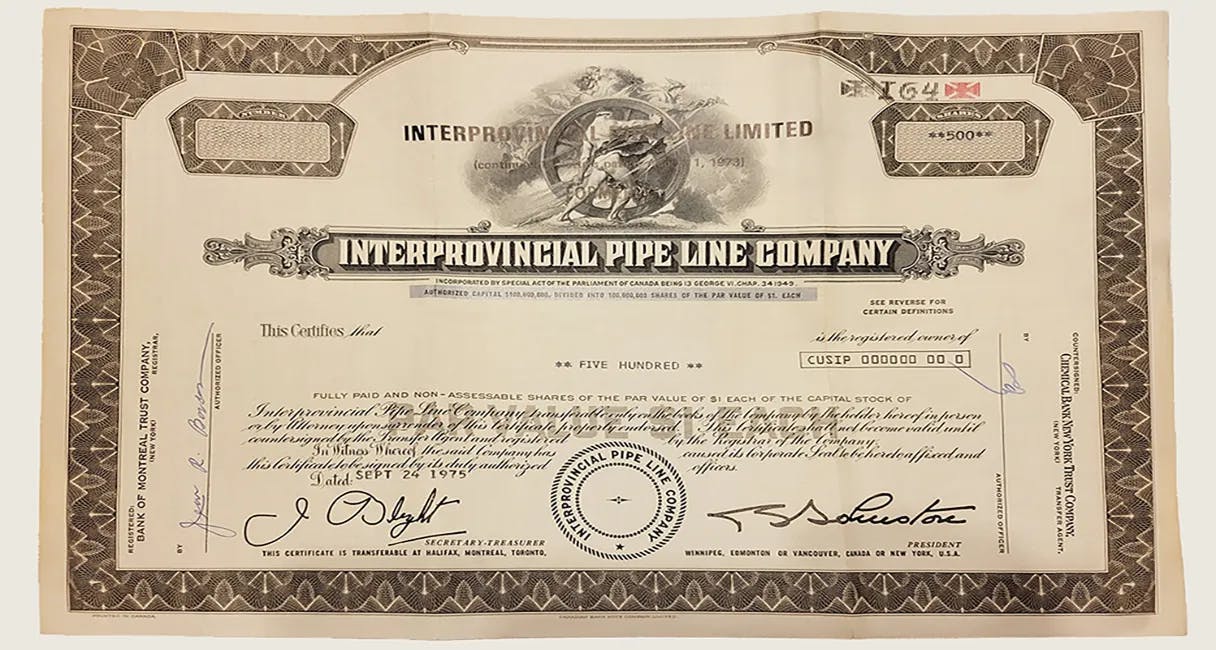
1996
IPL acquires Consumers' Gas,
which by 1996, after nearly 150 years in operation, has grown to serve more than 1 million customers in Ontario, Quebec and New York.
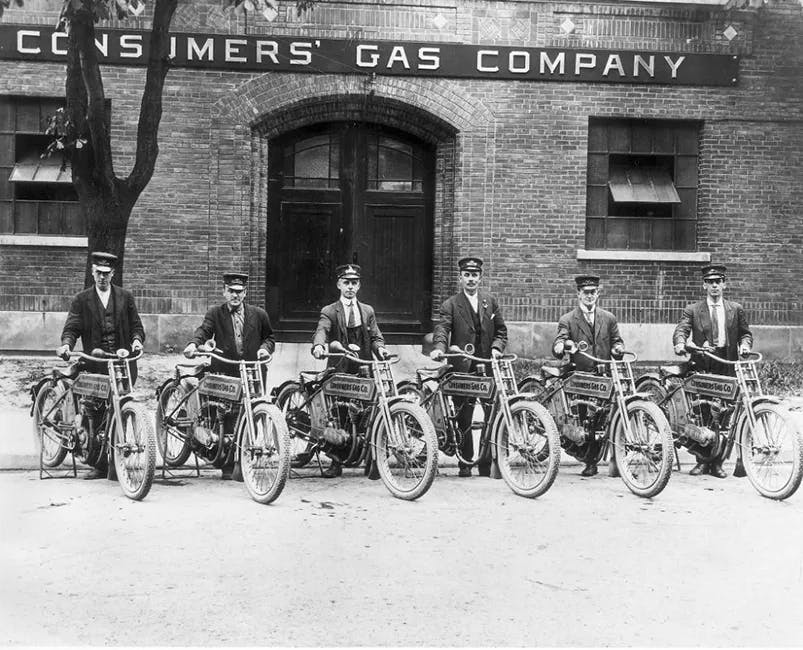

1997
Duke Energy forms by merging Duke Power and PanEnergy,
combining an electric utility and natural gas company, respectively.
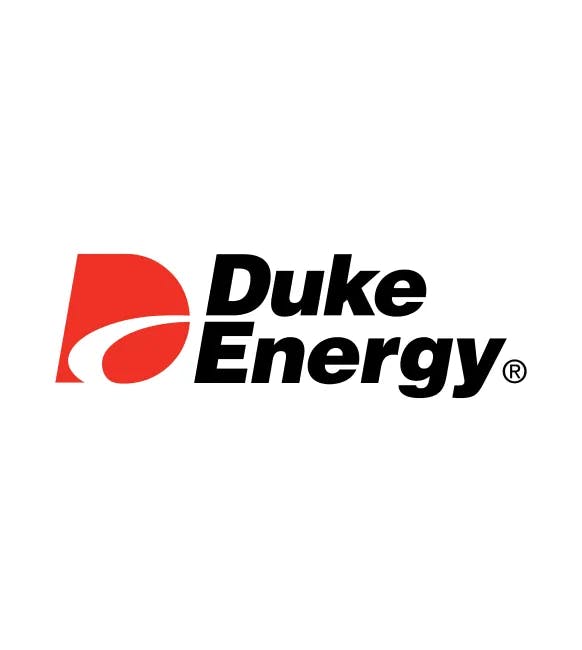
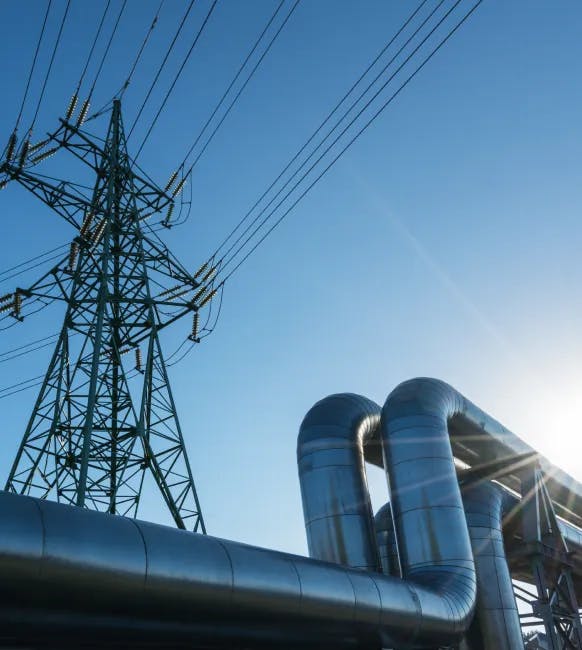
1998
IPL Energy becomes Enbridge,
a portmanteau combining “energy” and “bridge” that endures to this day.
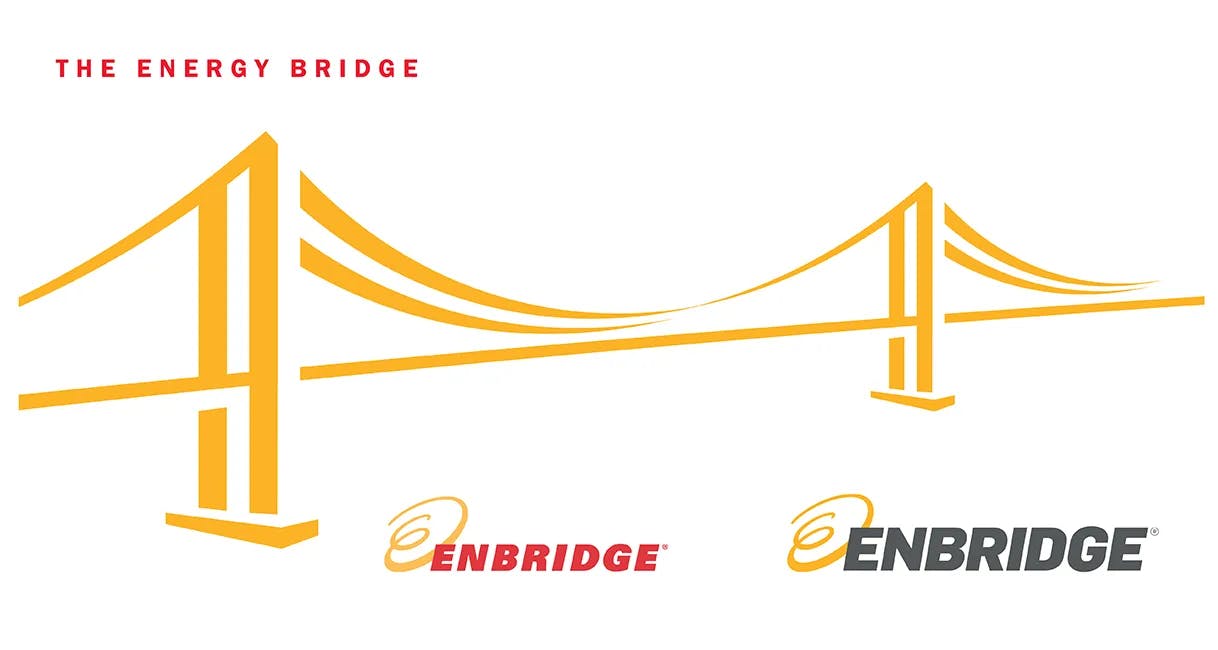
1999
Enbridge completes Athabasca Pipeline
The pipeline connects Alberta's oil sands to the Enbridge Mainline system in Hardisty, AB. With 12 oil sands projects now connected to the Athabasca system, Enbridge is the leading pipeline operator linking the oil sands to refineries across the U.S.
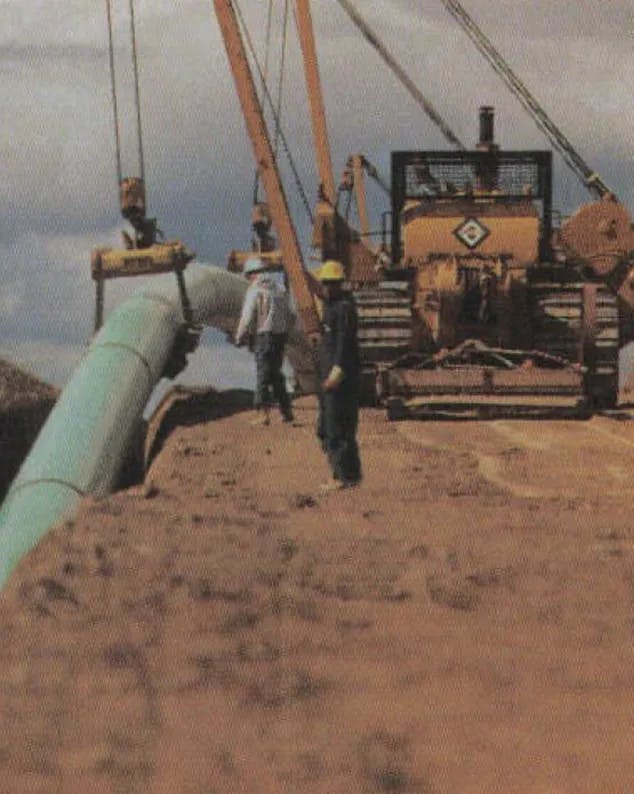
Spectra's Maritimes and Northeast Pipeline (joint venture with Emera and ExxonMobil) allows gas to flow from previously inaccessible areas in Nova Scotia, New Brunswick, Maine and the northeastern U.S.
Enbridge establishes a Climate Change Task Force. The task force introduces a comprehensive strategy the following year to limit greenhouse gas emissions — focusing on operational efficiencies, development of alternative and renewable energy, policy development, public outreach programs, and expanded tracking and reporting of emissions.
East Ohio Gas becomes Dominion Energy Ohio
East Ohio Gas is renamed Dominion Energy Ohio as its parent company CNG merges with Richmond, VA-based Dominion Resources (later renamed Dominion Energy), creating America’s fourth-largest electric power and gas company.
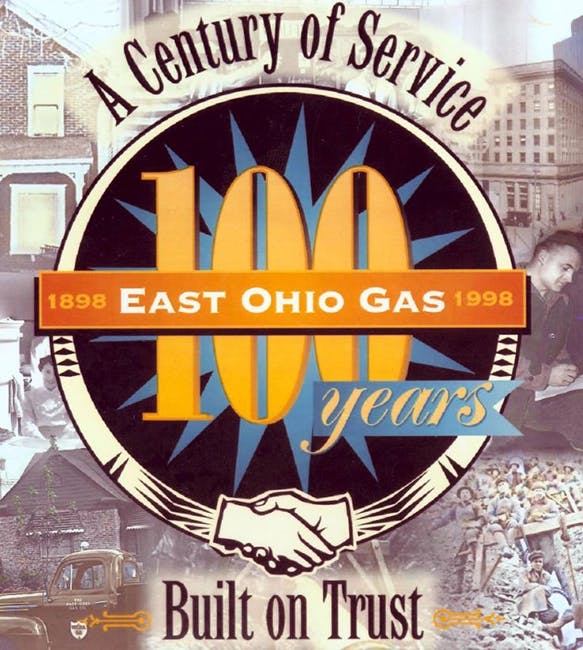
2000
Spectra forms joint venture with ConocoPhillips,
an entity that eventually becomes DCP Midstream (2007).
Enbridge Gas introduces demand-side management program to promote residential use of energy-efficient equipment.
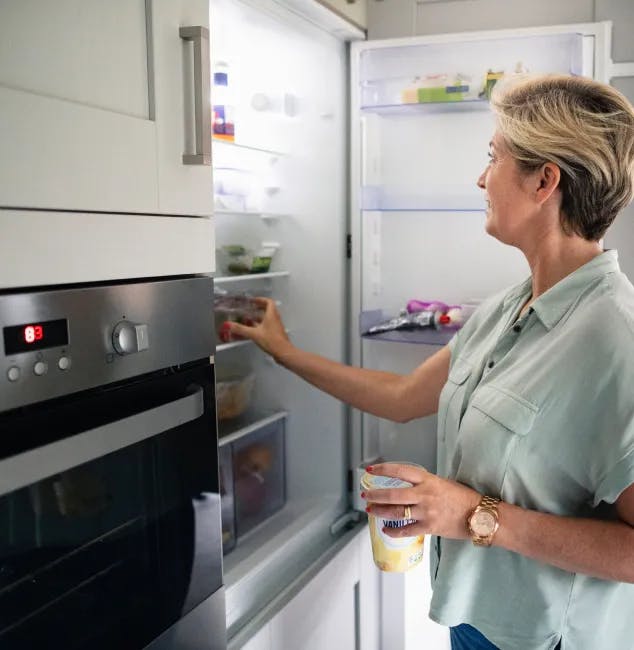
2001
Enbridge doubles size of international operations
by purchasing a quarter stake in Spanish oil transportation and storage company CLH.
Financial Times Global Energy Awards selects Enbridge Consumers Gas for its Environmental Practice of the Year Award. The company receives the honor for its longstanding nature, diversity and sustainability of its practices, and its "commitment to putting sustainable development principles into action with measured and impressive results."
Enbridge shares begin trading on the New York Stock Exchange under the symbol ENB.
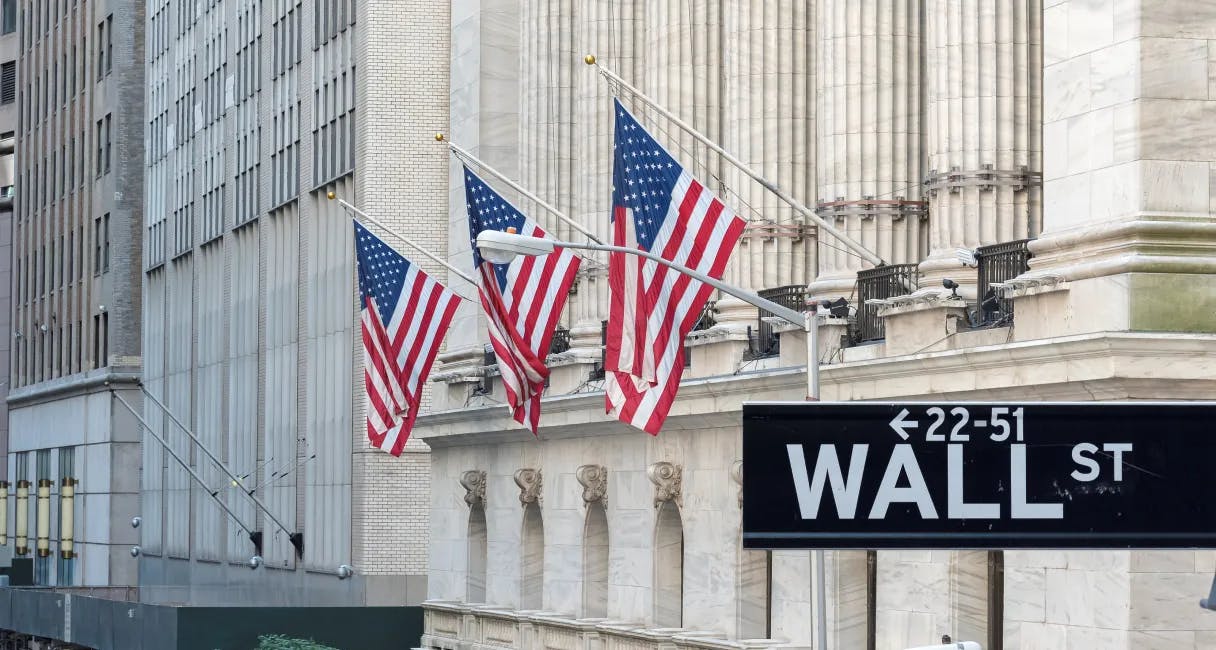
Enbridge releases first CSR report, called the Environment, Health and Safety Report, to discuss achievements, challenges and the company's EH&S goal to "have no accidents and cause no harm to the environment."
Enbridge acquires Houston's Midcoast Energy Resources, expanding our gas transmission business and growing our geographical presence in North America.
Enbridge is first selected among Canada's Top 100 Employers, an honor since received 20 more times — and counting.
2002
Duke Energy acquires Westcoast Energy
to enhance access to North America's major natural gas supply basins and markets.
The 745-mile Gulfstream Natural Gas System, the first interstate pipeline in the Gulf of Mexico, enters commercial operation. Co-owned by Duke Energy and later spun off into Spectra, Gulfstream carries gas from the Mobile Bay area to Florida for distribution, bringing unprecedented reliability to Florida energy consumers.
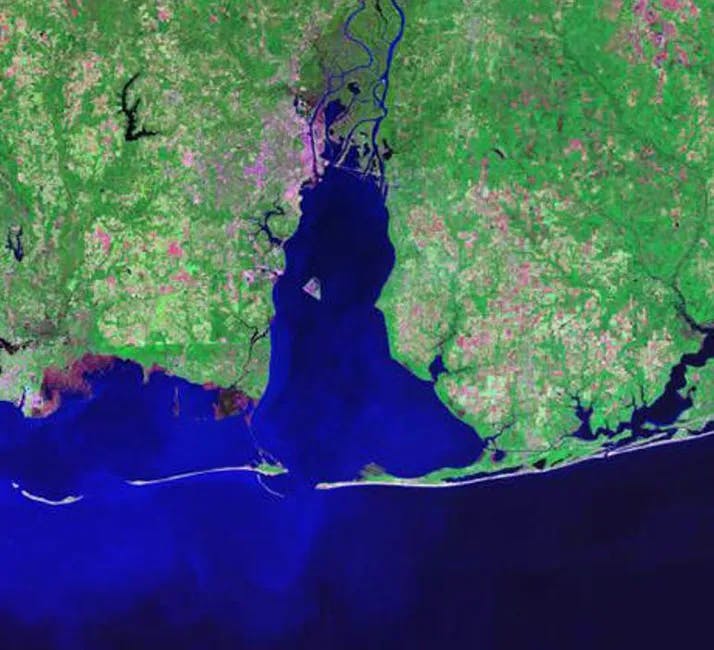
Enbridge invests in the SunBridge wind power project in Saskatchewan, beginning its portfolio in renewable energy investment.
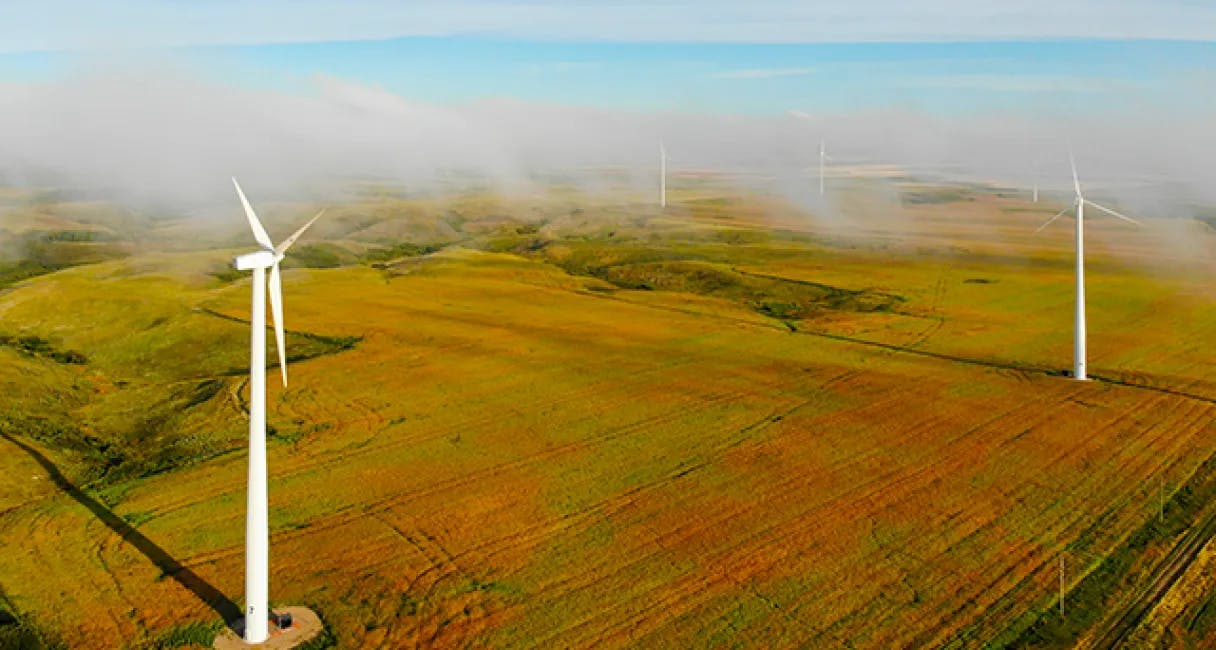
Launch of Safe Community First Responder Program in the aftermath of the 9/11 terrorist attacks. To date, the program has invested over US$20 million (more than C$26.1 million) in North American emergency responder organizations.
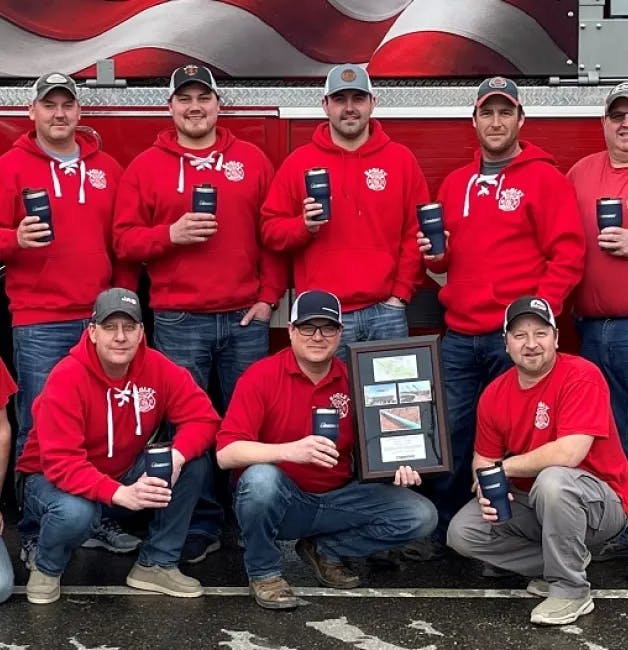
First selection to the Dow Jones Sustainability Indices. The DJSI track publicly traded companies on economic, environmental and social criteria; Enbridge has been named to the North American index 14 times and the world index nine times.
2004
Enbridge begins publicly disclosing its own greenhouse gas emissions
through the Canadian Standards Association GHG Voluntary Challenge and Registry.
Enbridge becomes a signatory of the UN Global Compact. Consisting of over 15,000 companies and 4,000 non-businesses, the compact allows companies to share their progress on corporate social responsibility efforts with each other.

Enbridge Gas Distribution launches Winter Warmth Fund in Toronto.

An out-of-control gas leak and fire at Duke Energy's Moss Bluff salt cavern storage facility in Liberty Country, TX blazes for 6.5 days until all 6 Bcf of gas in the cavern burn. In response, Duke develops the storage integrity management standards that eventually are codified into federal regulations.
2005
Enbridge begins capturing exhaust heat from turbines
and converting it into emissions-free electricity with the opening of five NRGreen Power waste heat recovery facilities along the Alliance Pipeline.
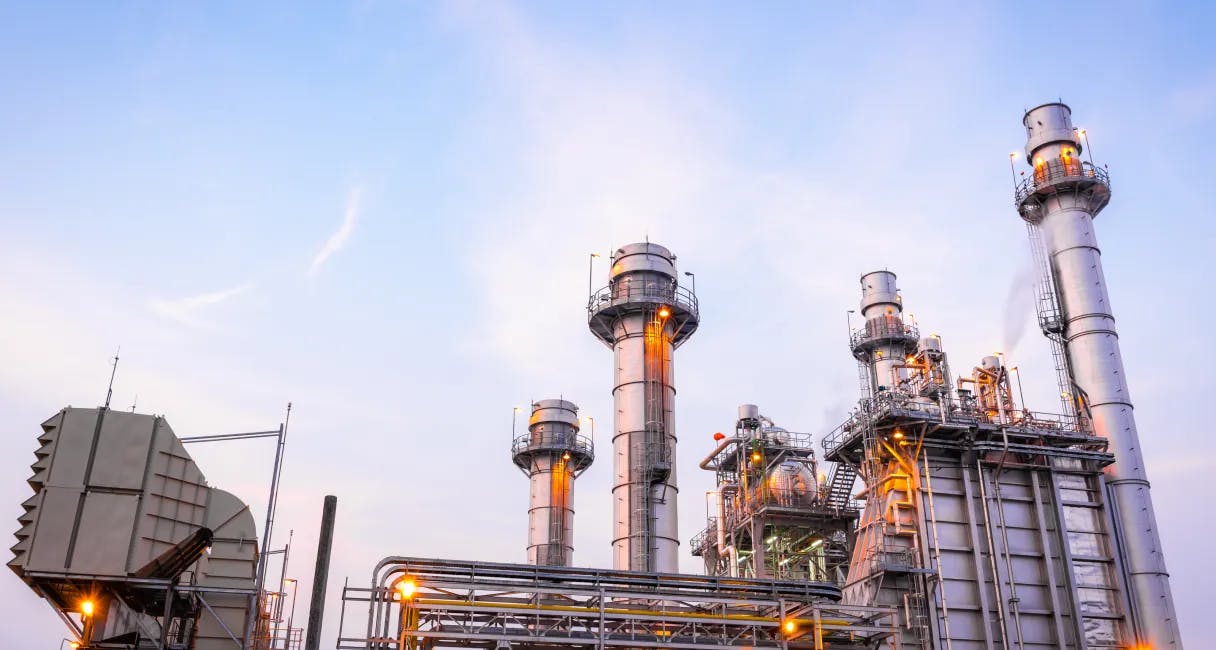
2006
Through the acquisition of Shell Gas Transmission,
Enbridge becomes one of the largest gas transporters in the Gulf of Mexico. The deal adds 11 active offshore natural gas-gathering and FERC-regulated transmission pipelines and four active offshore oil pipelines that collectively span more than 1,200 miles and traverse four major corridors in the gulf.
First recognition on the annual Global 100: Most Sustainable Corporations in the World list.
2007
Spectra Energy
becomes an independent business from Duke Energy.
Enbridge establishes its first Climate Change Policy, committing to reducing its own greenhouse gas (GHG) emissions and energy use, and to working with external stakeholders and decision makers to advance new climate solutions.
2008
Enbridge sets its first GHG reduction target
The goal seeks to reduce direct emissions in its Canadian operations by 20% below 1990 levels by 2010. In 2011, Enbridge reports a 21% reduction below 1990 levels, primarily by upgrading facilities and equipment.

2009
80 MW Sarnia Solar Project in Ontario, Canada comes online
The project serves as Enbridge's entry into the solar sector.
Enbridge starts Safe Community Project Zero. In 2022, Project Zero distributes 8,000 combination alarms to residents in 50 Ontario municipalities. Since the project's founding in 2009, more than 76,000 alarms have been provided to keep families safe.

2010
An estimated 1 million U.S. gallons of diluted bitumen from Enbridge's Line 6B (now Line 78) spill into Michigan's Kalamazoo River, creating one of the largest inland oil spills in U.S history. Immediately, Enbridge makes a promise to the local community to restore the area and resolves to prevent such an event from happening again.
The Marshall incident has made a lasting impact on the way Enbridge operates. It guides our decisions, and it strengthens our resolve to prevent such an event from ever happening again. In 2012, Enbridge goes on to announce its Advanced Pipeline Integrity Program, ensuring pipeline safety through improved inspection technologies and practices.
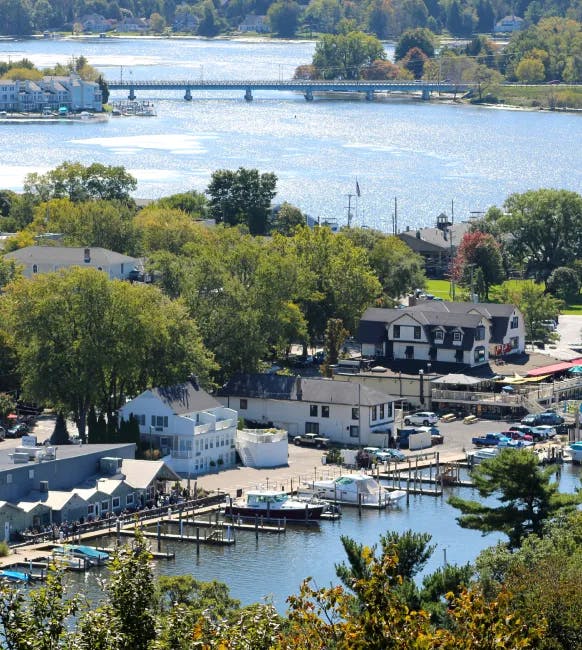
The Alberta Clipper pipeline (Line 67) joins the Mainline network as Enbridge's first new long-haul liquids pipeline in a decade.
The line travels 1,112 miles (1,790 km) from Hardisty, AB to Superior, WI.
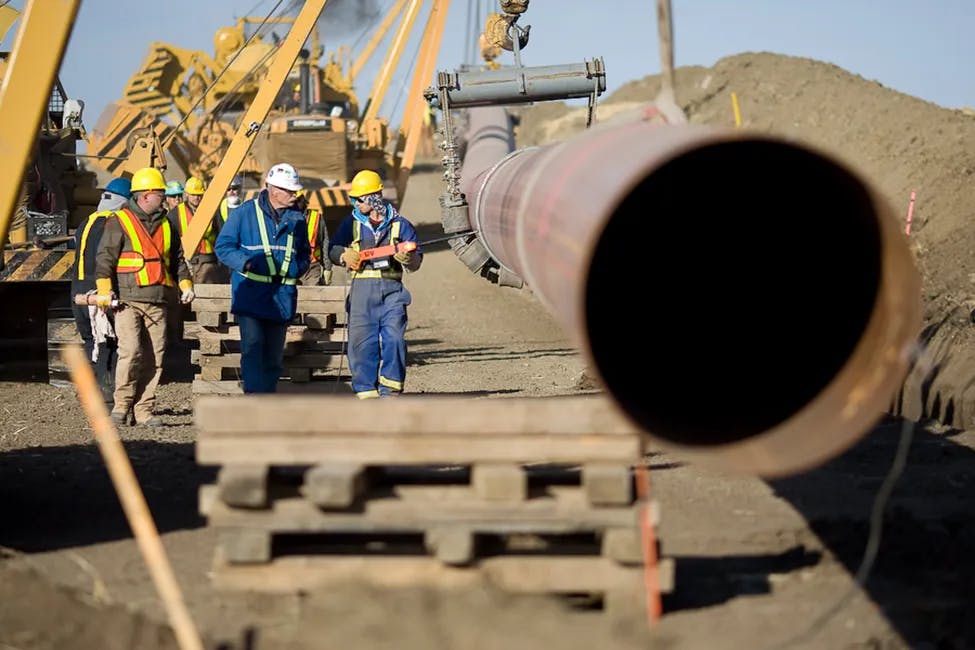
2011
Harnessing the
Colorado wind
Colorado wind
The 252-MW Cedar Point Wind Farm, near Limon, CO. Enbridge’s first foray into the U.S. wind energy sector, Cedar Point satisfies the electricity needs of more than 100,000 homes with zero-emission energy.
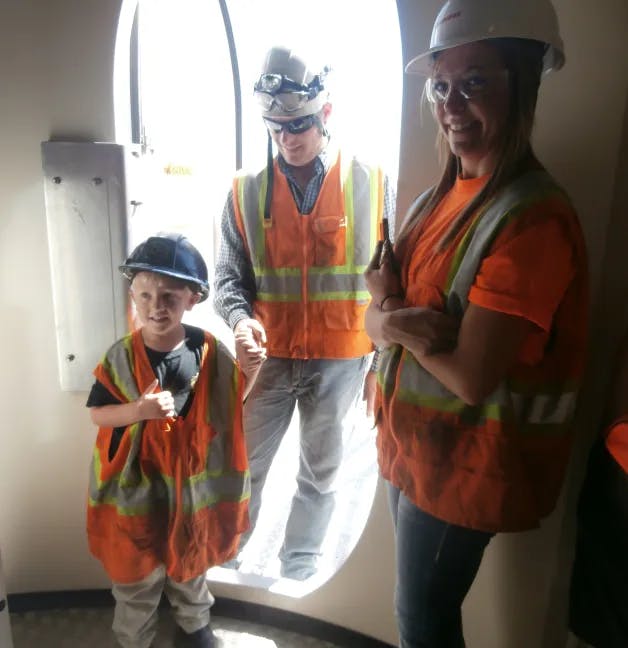
Enbridge becomes the title sponsor of the Ride to Conquer Cancer, a series of cycling fundraising events across Canada. In a decade as title sponsor for the Ontario, Quebec and Alberta legs of the Ride, the event raises more than C$500 million for cancer research, treatment and care.
2012
Enbridge enters the U.S. solar energy market
The first solar project built on U.S. public lands, Nevada-based Silver State North generates enough emission-free energy to serve the needs of more than 11,500 homes.
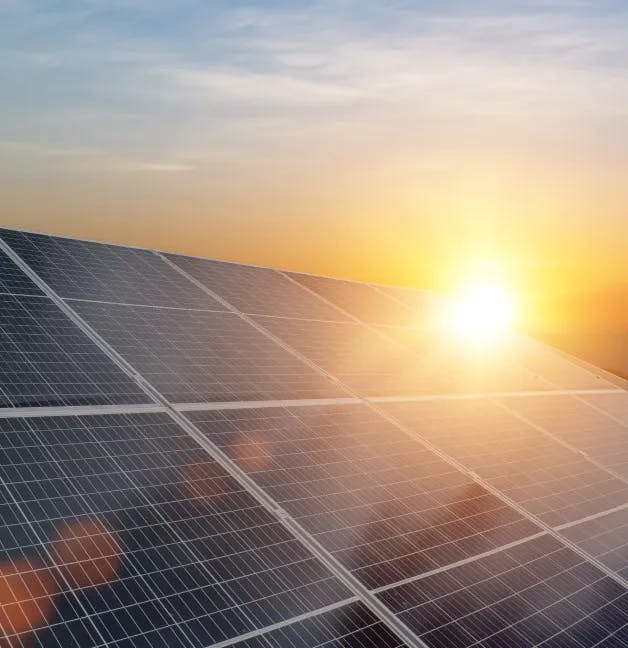
Enbridge Gas drastically reduces methane emissions through the completion of a cast iron pipe replacement project.
2013
Enbridge invests in Oregon’s Neal Hot Springs Geothermal Project,
creating an annual yield of 191,000 MWh, enough to power more than 18,000 homes.
Enbridge Gas Distribution reaches two million Ontario residents and businesses, serving customers in more than 100 Ontario communities. EGD is now the largest natural gas distribution utility in Canada and one of the fastest growing in North America, providing a low-carbon source of energy that can help replace coal-fired electricity and support improved energy sustainability at the community level.
Spectra builds first new natural gas pipeline into Manhattan in more than 40 years. The NJ-NY Expansion Project increases gas supply for another 2 million people in Manhattan and wins the 2014 Platts Global Energy Construction Project Award.
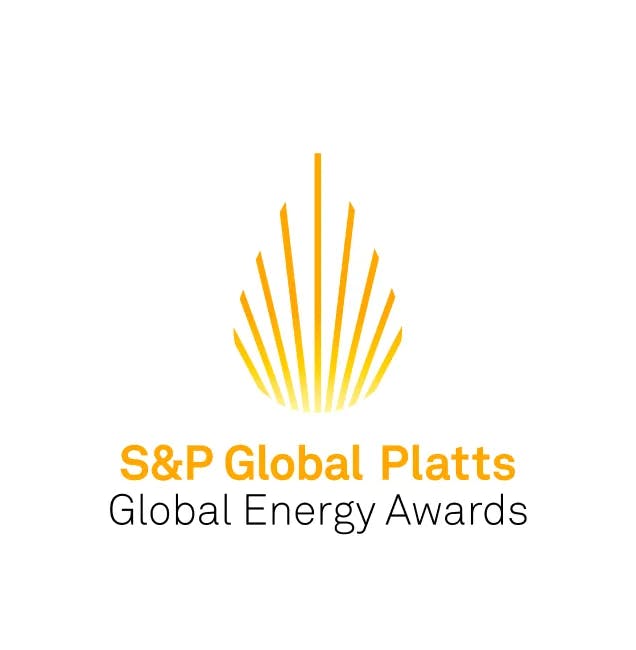
Spectra acquires Express and Platte liquids pipeline systems, which collectively travel from Hardisty, AB to Wood River, IL via Casper, WY. These are the first oil lines operated by Spectra.
2014
Enbridge invests C$4 million in ELDER leak detection research and innovation
through a Joint Industry Partnership with TransCanada Corporation.
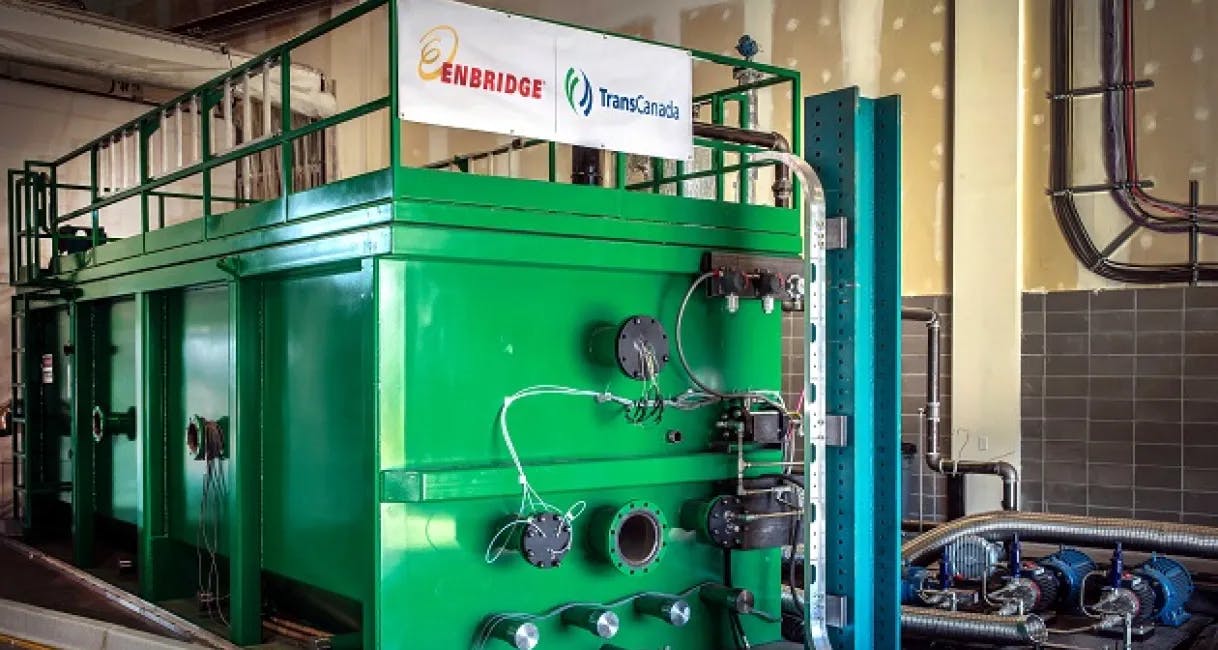
2015
Enbridge begins using sonar-equipped Autonomous Underwater Vehicles (AUVs) to inspect the Line 5 Straits of Mackinac crossing in Michigan, adding another layer of safety to Line 5 at the Straits.
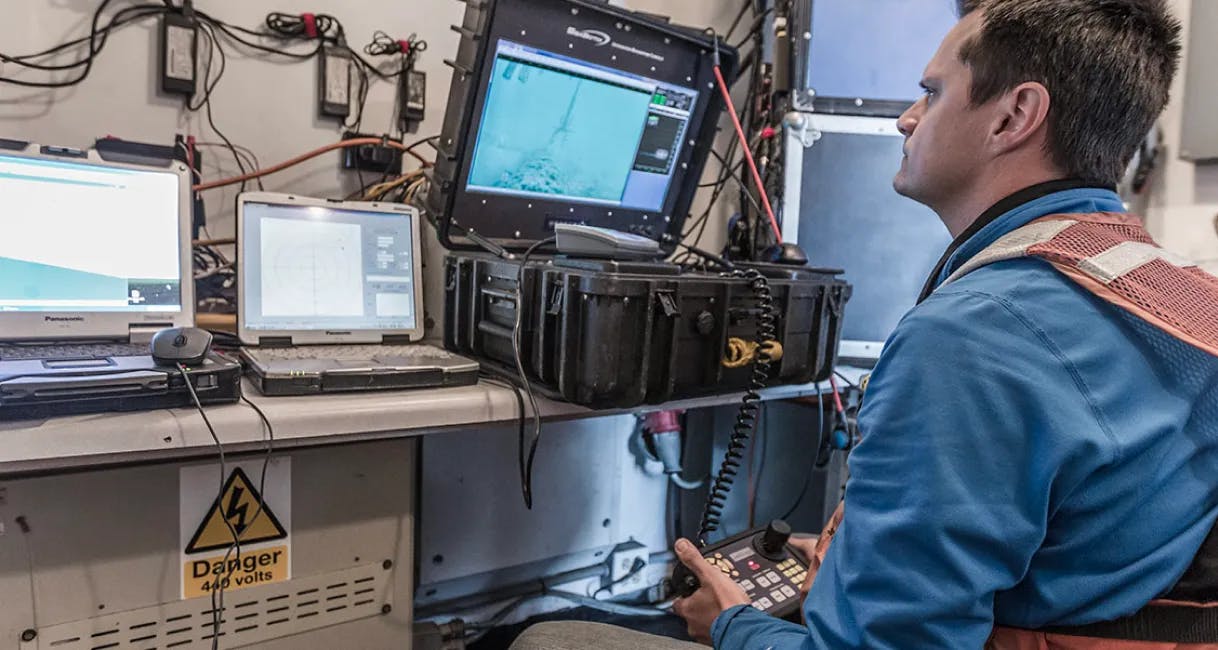
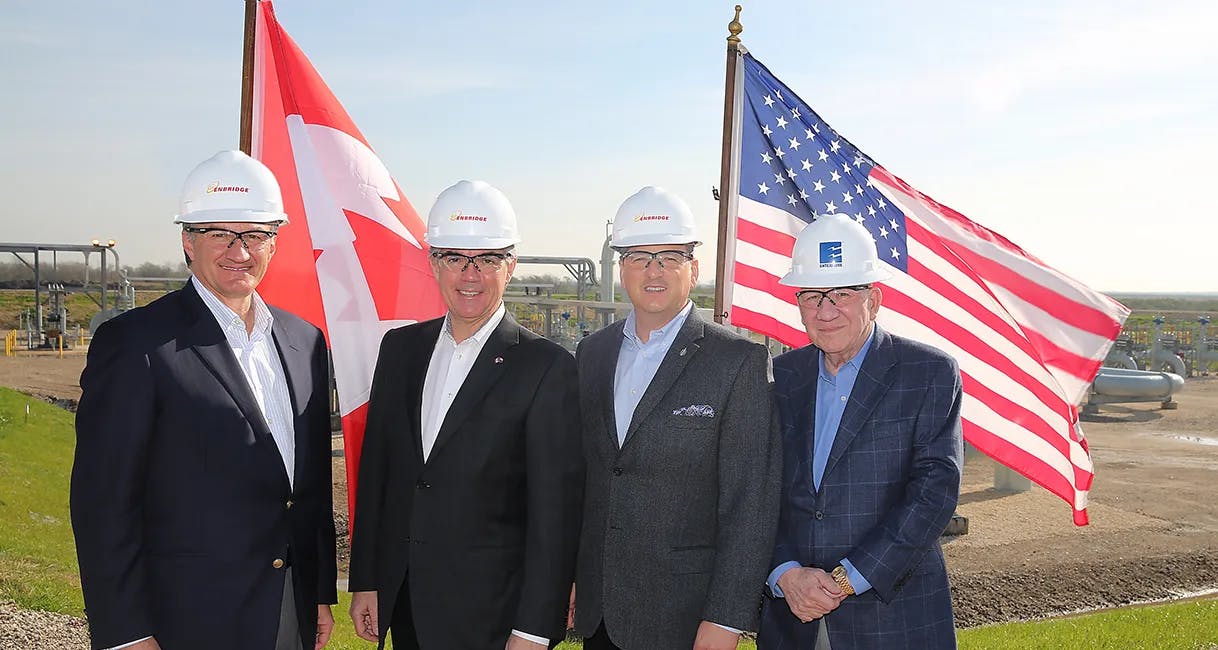
With the completion of the Flanagan South pipeline from Pontiac, IL to Cushing, OK and the reversal of the Seaway system from Cushing to Houston, Enbridge creates the first large-volume, full-path solution for delivering Western Canadian heavy oil to the Gulf Coast, boosting North American energy security.
2016
Dominion Energy acquires Questar,
and affiliate E&P company Wexpro, as the hub of its Western U.S. operations.

2017
Enbridge Inc. and Spectra Energy Corp merge
to create the largest energy infrastructure company in North America.
The combined company brings together Enbridge’s liquids pipelines with Spectra’s gas assets, the company’s top-tier regulated Ontario utility portfolio, U.S. and Canadian midstream businesses, and a growing renewable power generation business.
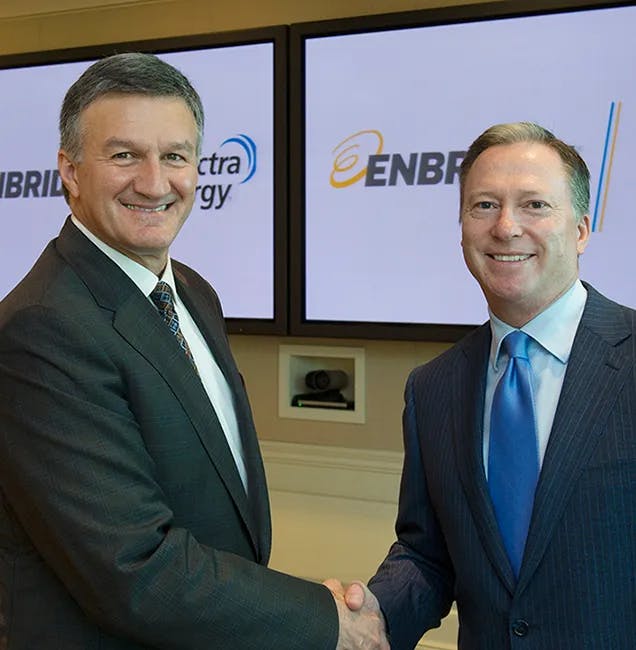
North America's first utility-scale power-to-gas facility becomes operational. The Enbridge-Cummins Inc. facility in Markham, ON converts surplus electrical energy from renewable sources into hydrogen, part of Enbridge's ongoing work in promoting viable energy-efficient technologies that contribute to reduced emissions and improve clean energy.
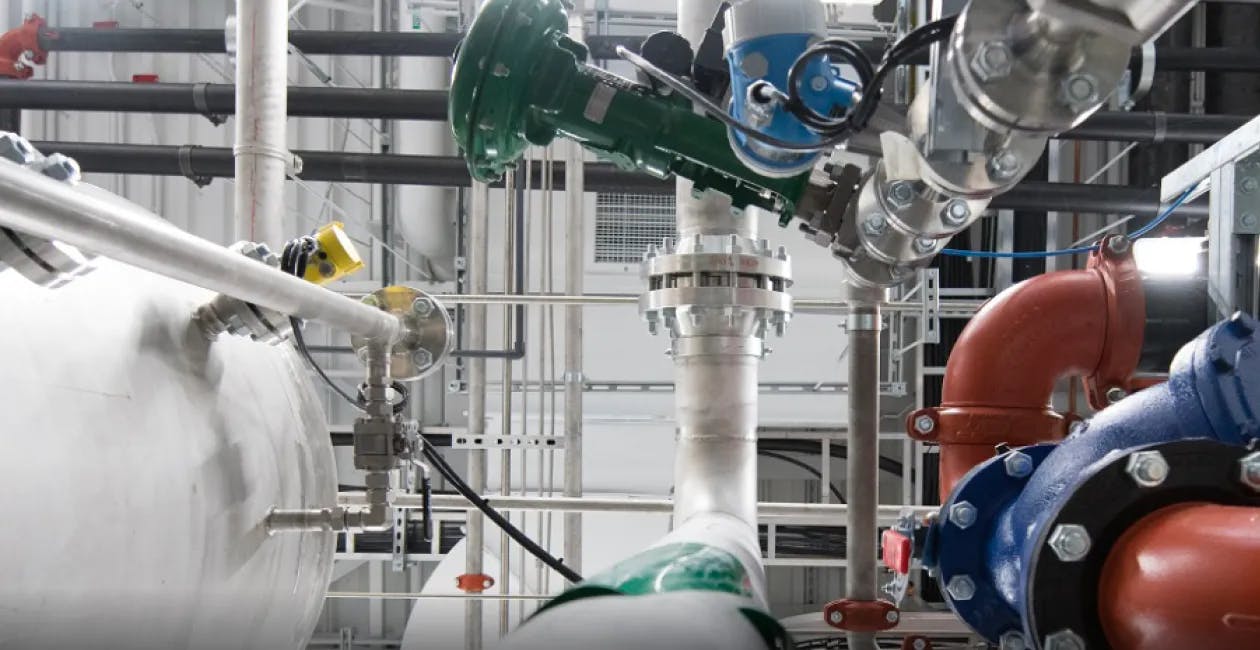
Enbridge’s Diversity Dashboard launches, going on to win 2020 Catalyst Award for commitment to improve gender representation.
First appearance on Bloomberg Gender Equality Index. Currently, Enbridge has been named five years in a row.
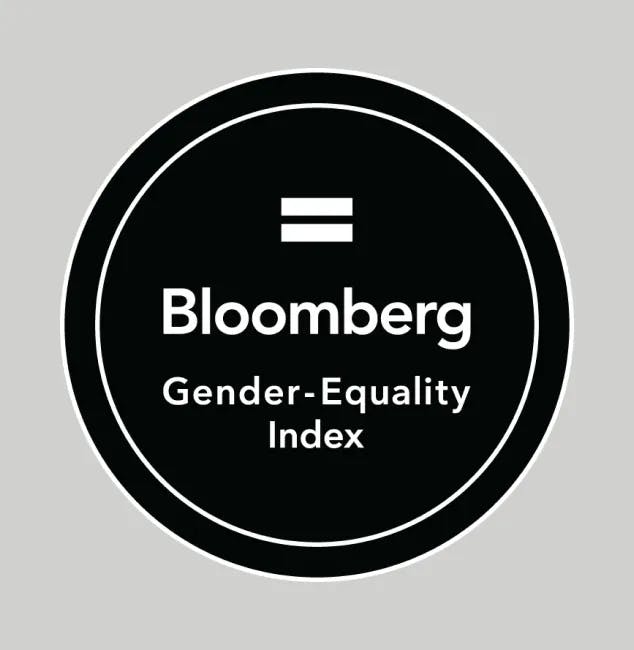
2018
Enbridge launches 400-MW Rampion Offshore Wind Project
in the English Channel, the company's first journey into the offshore renewables market.
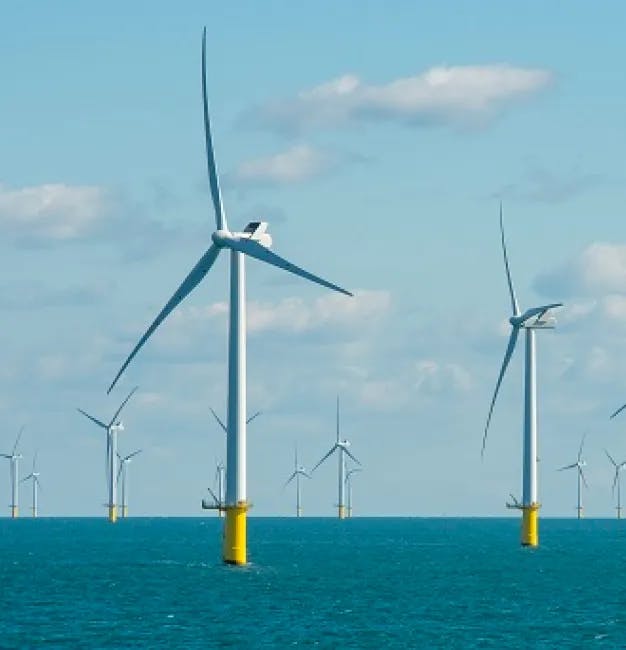
Enbridge develops PASA, a one-of-a-kind Performance and Analytics and Situational Awareness solution that will fundamentally transform the economics and efficiency of wind power by optimizing servicing, avoiding downtime and predicting mechanical issues.
Partnership launched with Microsoft on pilot project using digital twin technology to monitor and maintain pipelines.
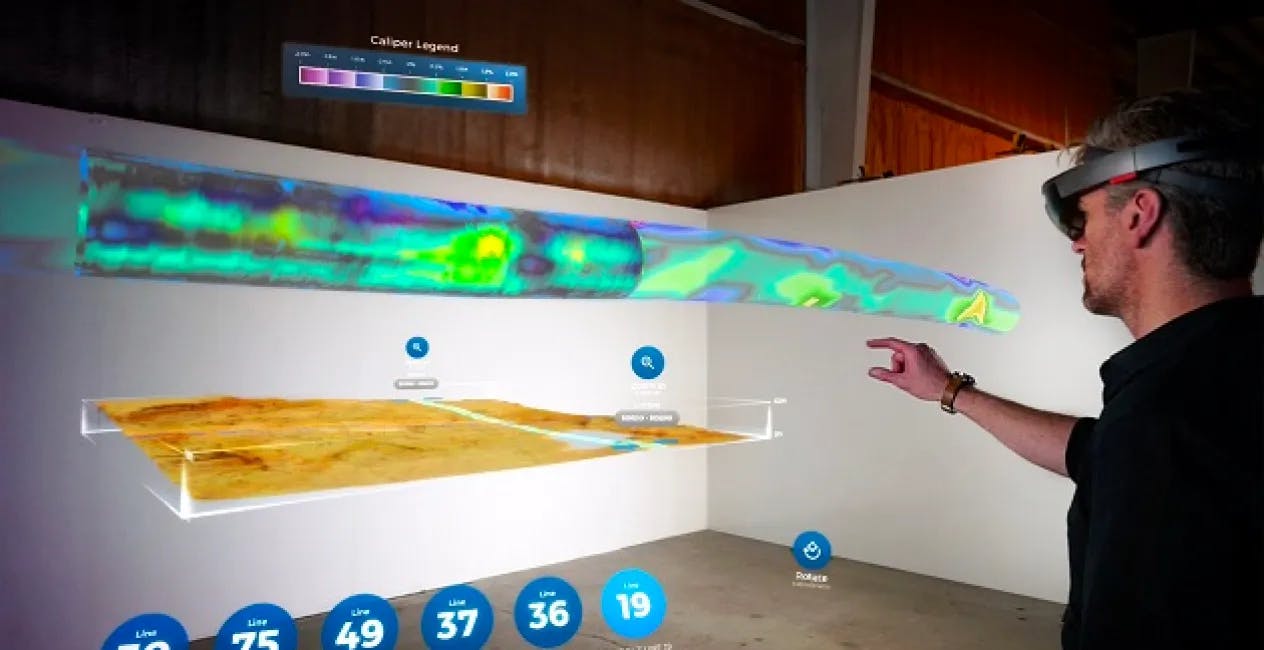
2019
The Canadian portion of the Line 3 Replacement project, the largest project in Enbridge history, enters service after the replacement of 665 miles (1,070 km) of pipe across the Canadian prairies, from Hardisty, AB to Gretna, MB.
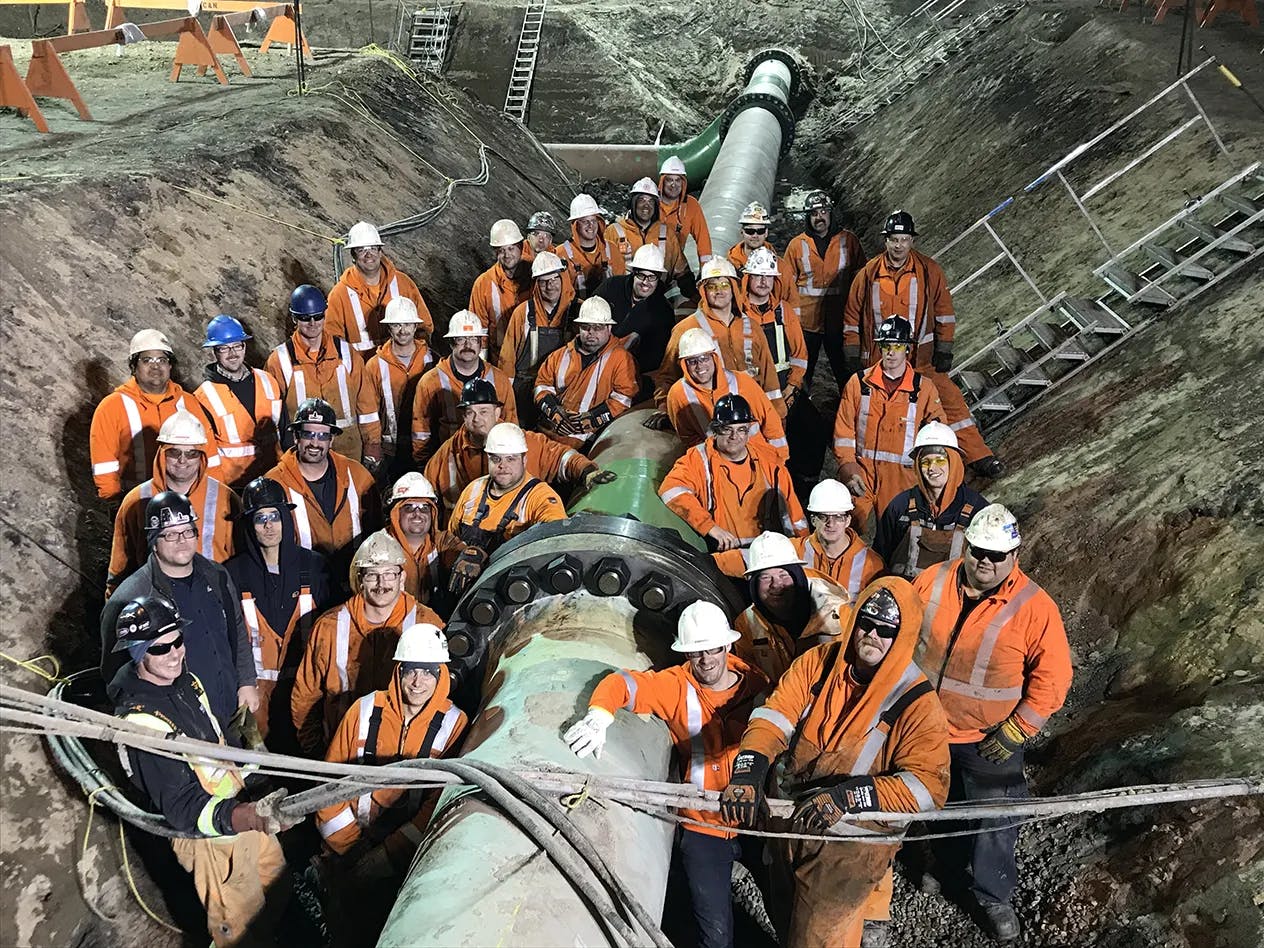
More than 1,100 Indigenous men and women — about 20% of the construction workforce — are employed on the replacement of Line 3 in Canada, with more than C$120 million in wages paid to those Indigenous workers.
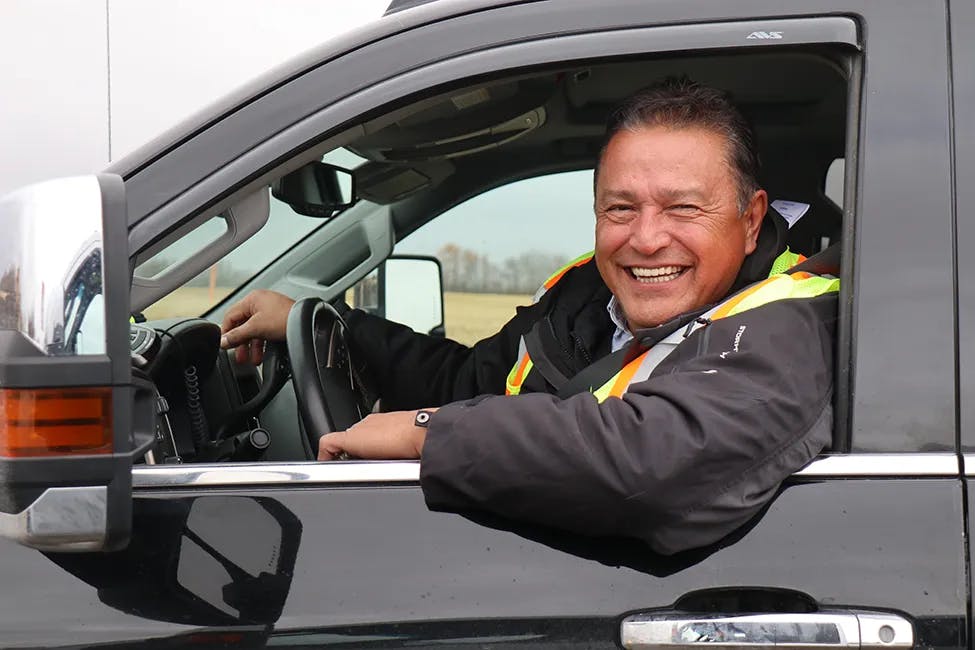
Launch of the Energy Efficiency in Action program,
which provides financial incentives and support to help Enbridge Gas customers reduce their energy consumption and greenhouse gas emissions.
Enbridge deploys its "next-generation" pipeline inspection robots in partnership with NDT Global. These "smart pigs" search every millimeter of pipe walls, identifying and sizing features that were never previously detectable.
Enbridge's Technology + Innovation Lab debuts Turing. The tool helps integrity engineers, data scientists and reliability experts use big data and machine learning for data accuracy and efficacy.
Enbridge becomes the first company in the industry to move to quantitative risk assessments.

Virginia-based Dominion Energy merges
with SCANA Corporation,
with SCANA Corporation,
owner since 1999 of the Public Service Company of North Carolina. The utility now has 550,000 customers.
2020
Enbridge introduces performance-based environmental, social and governance (ESG) goals.
Enbridge becomes the biggest player at Cushing Terminal, with a storage capacity of about 27 million barrels. Cushing Terminal is the world's largest crude oil facility, the most significant trading hub, and a vital transshipment point on the energy landscape.
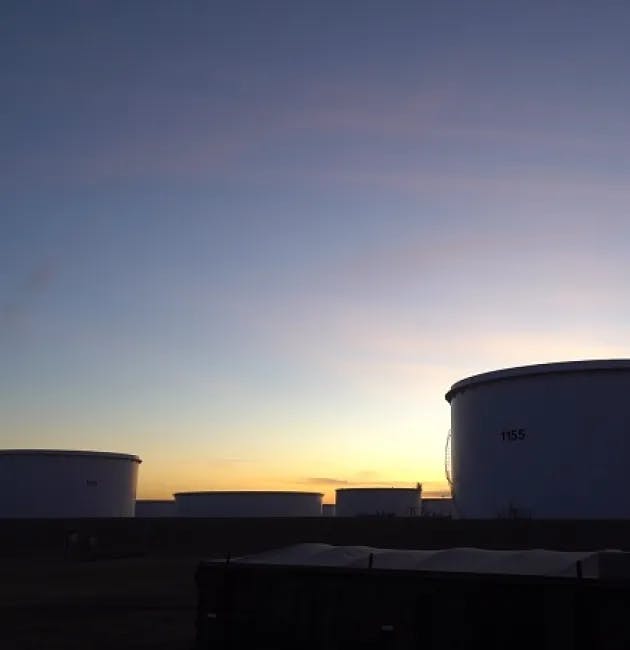
Enbridge and Cummins Inc. announce a hydrogen-blending pilot project, which converts excess energy from renewable sources into hydrogen gas, storing surplus electrical energy using the existing pipeline infrastructure. The green project, based in Markham, ON, is the first of its kind in North America, providing blended gas to 2,600 customers and abating up to 117 tons of CO₂ from the atmosphere.
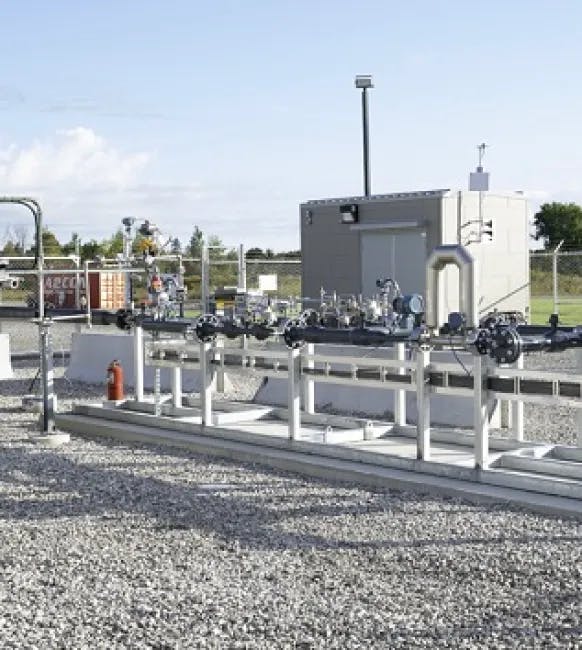
Enbridge Straits Maritime Operations Center (ESMOC) launches in Michigan's Straits of Mackinac. With hi-def cameras, radar scanners and radio and wireless communication, the ESMOC represents a new, unprecedented level of maritime monitoring capability for a commercial company.
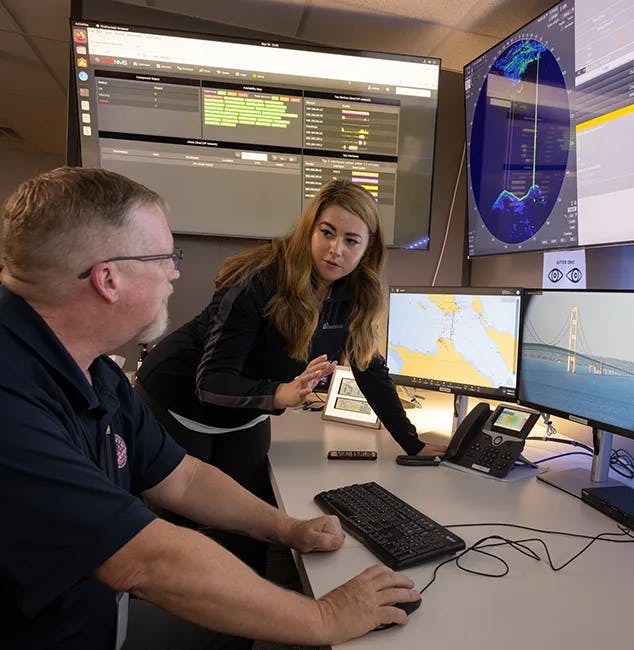
Enbridge workforce continues to become more diverse, consisting of 31% women and 21% racial and ethnic groups.
2021
Enbridge acquires the Ingleside Energy Center,
the largest oil storage and export terminal by volume in the U.S. located in Corpus Christi, TX.
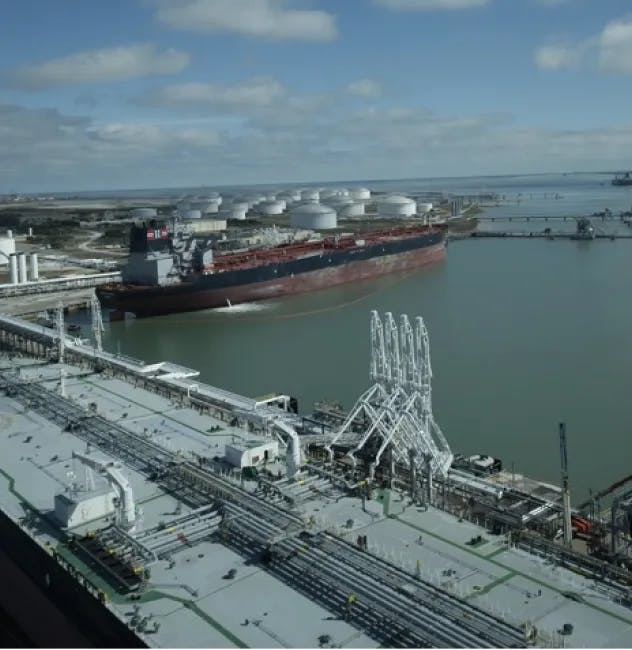
Enbridge demonstrates commitment to ESG and a more inclusive energy future with North America's first Sustainability-Linked Bond Framework.
The American portion of the Line 3 Replacement project, the largest project in Enbridge history, enters service after the replacement of 365 miles of pipe from Joliette, ND to Superior, WI. The project creates more than US$378 million in economic opportunities for Tribal nations, Tribal members and Native American-owned businesses in the U.S. Nearly 900 Tribal members work on the project, making up 7% of the total workforce.
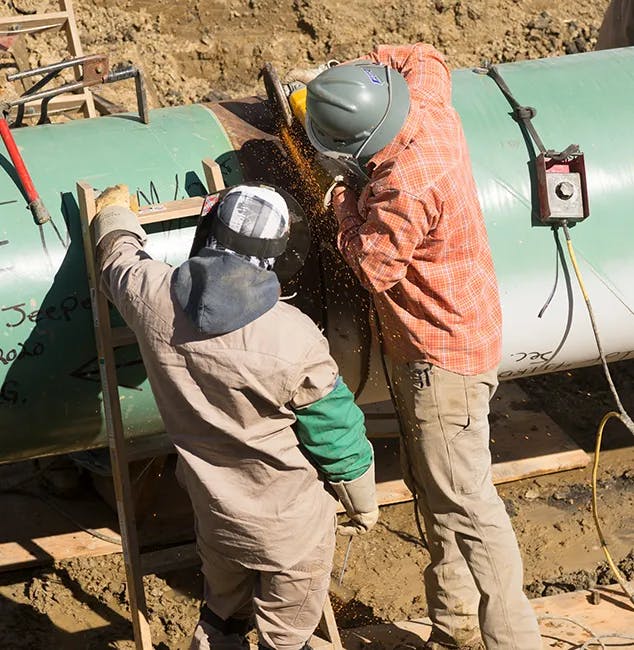
2022
Enbridge acquires Tri Global Energy,
expanding its renewable energy portfolio by more than 7 GW.
The Saint-Nazaire project, France's first offshore wind farm, becomes fully operational.
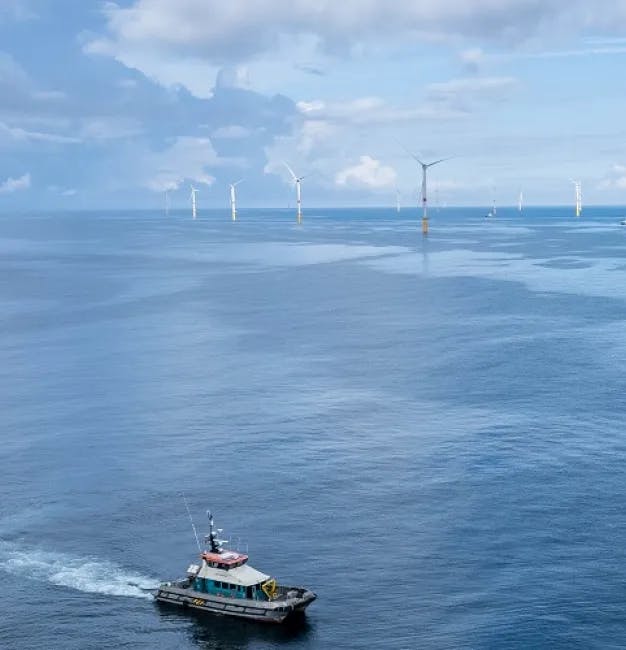
Enbridge announces largest energy-related Indigenous economic partnership transaction in North America with the sale of 11.57% of seven Enbridge pipelines in Alberta to a consortium of 23 First Nations and Métis communities.
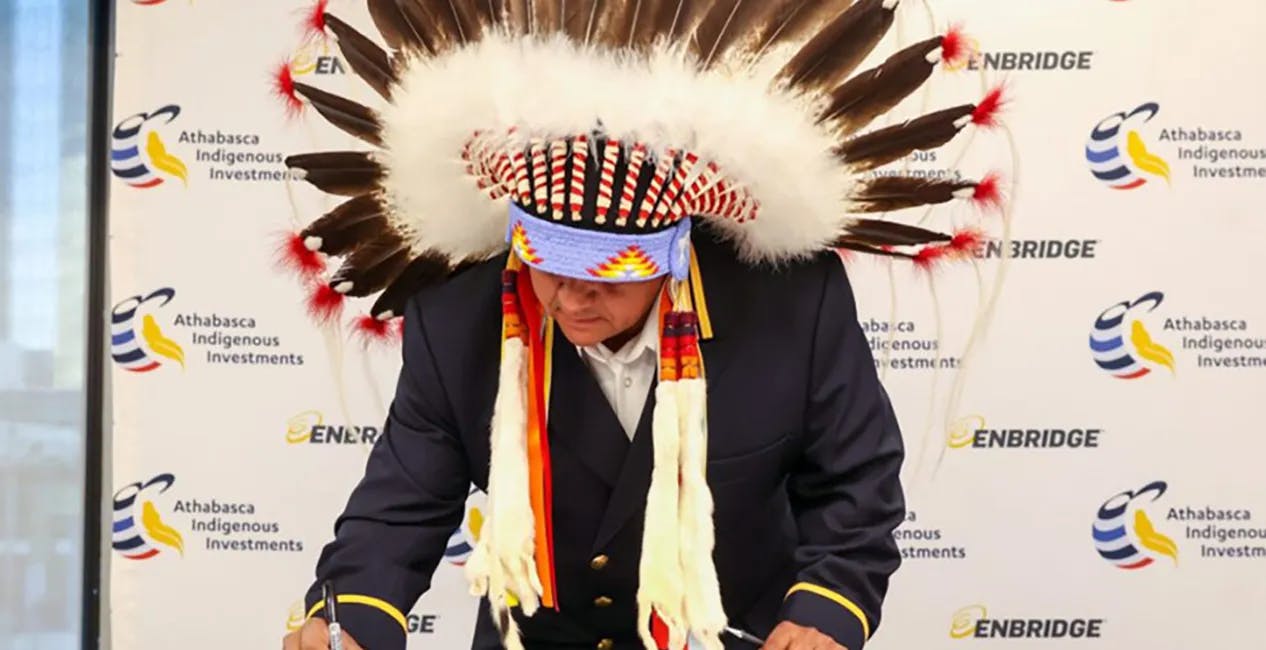
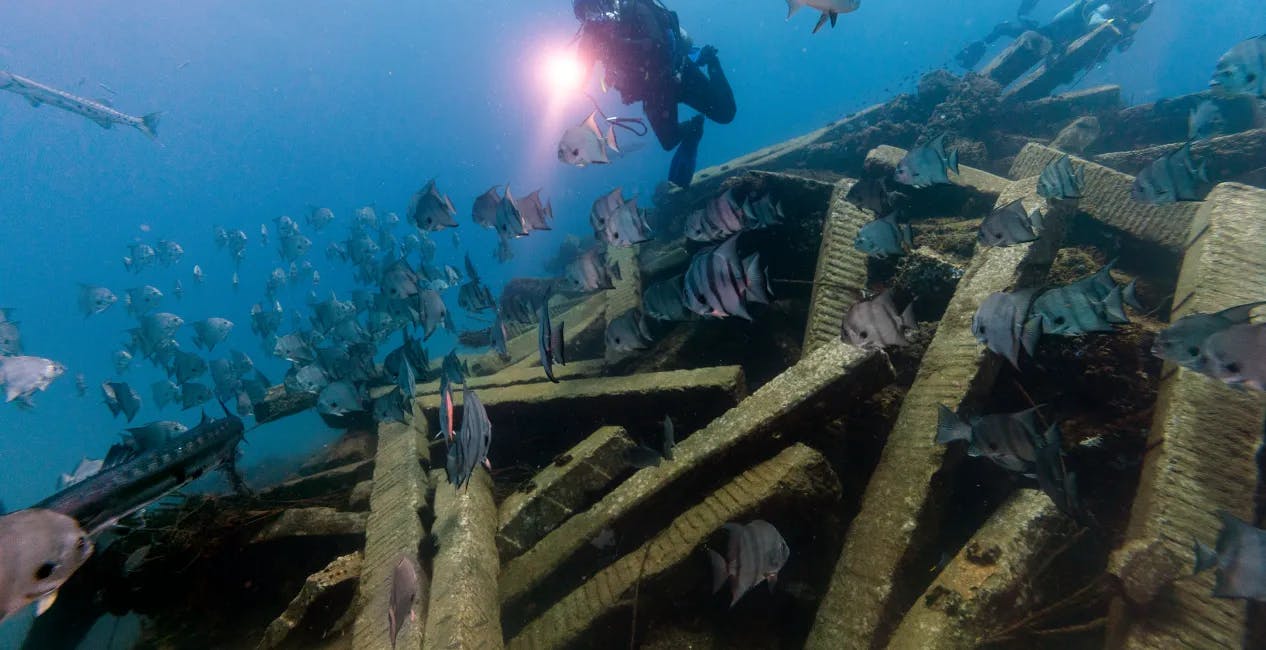
Enbridge funds carbon sequestration study in the Rio Grande Valley Reef, the largest artificial reef in Texas.
Enbridge releases our Indigenous Reconciliation Action Plan (IRAP), which serves as our company roadmap in building and maintaining relationships, creating economic opportunities, maximizing benefits and incorporating feedback from Indigenous communities across North America.

Enbridge boosts its ownership stake in, and takes over operatorship of, the Gray Oak Pipeline in Texas, strengthening its position in Permian Basin crude delivery and advancing its U.S. Gulf Coast liquids strategy.

2023
Enbridge acquires three gas utilities from Dominion Energy
that serve more than 3 million collective customers in Ohio, Utah, North Carolina, Wyoming and Idaho.
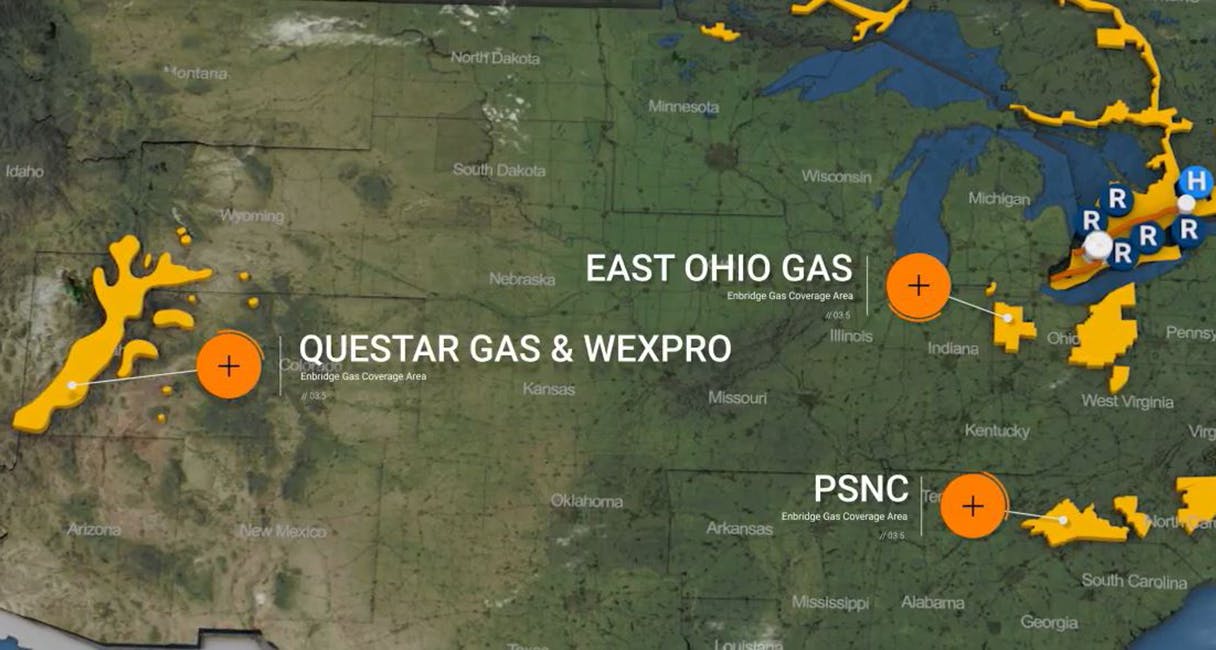
Enbridge acquires seven U.S. landfill gas-to-RNG facilities from Morrow Renewables, a significant step in the manufacturing and transporting of renewable natural gas.
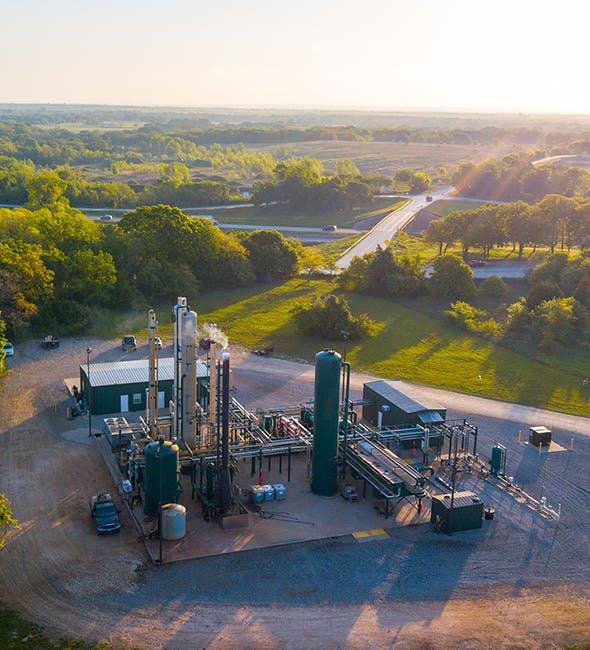
Enbridge pledges US$250,000 annually for three years to support the establishment of the Greater Houston Disaster Alliance to help strengthen disaster preparedness across the Houston region.
Enbridge sells the Plaza/Wabek Pipeline in North Dakota to a Mandan, Hidatsa and Arikara Nation subsidiary, opening the door for MHA Nation to become the first Tribal shipper on our liquids system.
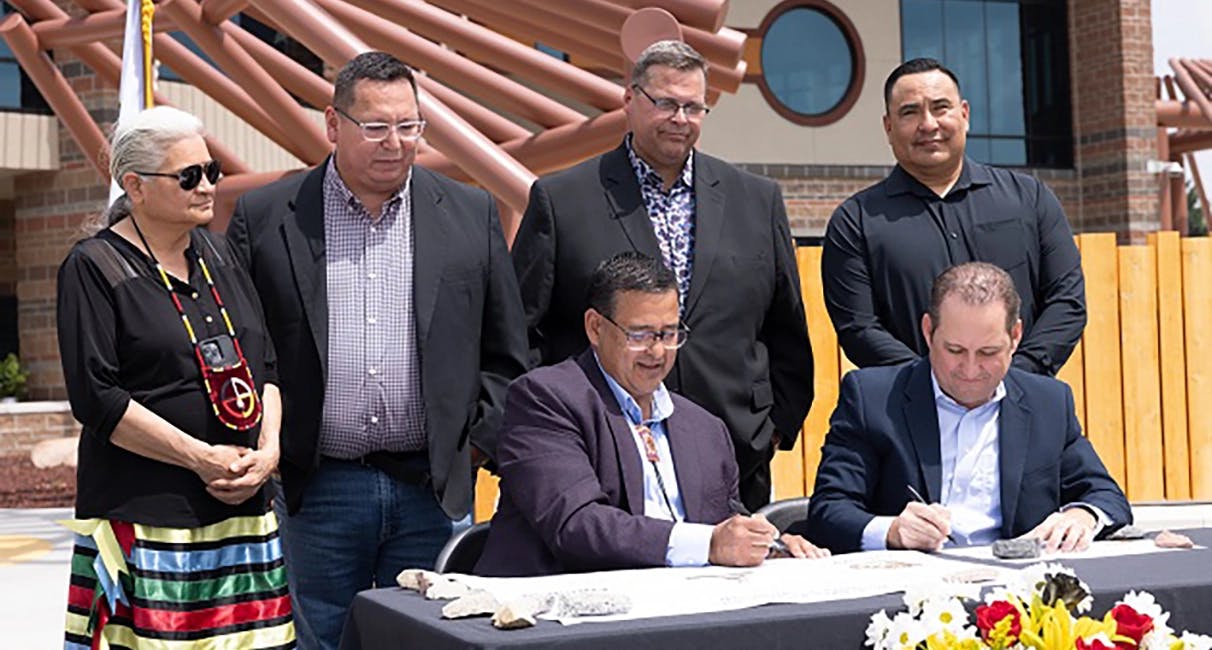
2024

Enbridge Gas North Carolina joins the fold
Enbridge’s third of three American utility acquisitions closes, as Dominion Energy North Carolina (a.k.a. the Public Service Company of North Carolina) becomes Enbridge’s seventh gas utility franchise. Enbridge Gas North Carolina serves more than 650,000 customers across 28 counties, primarily serving the cities of Raleigh, Durham, Chapel Hill, Gastonia and Asheville.
Enbridge Gas launches operations in Utah,
Wyoming and Idaho
Wyoming and Idaho
Enbridge’s purchase of Dominion Energy’s Utah-based operation closes, resulting in the launch of three utilities — Enbridge Gas Utah, Enbridge Gas Wyoming and Enbridge Gas Idaho — that serve more than 1.2 million customers in Utah, southwestern Wyoming and southeastern Idaho.

Enbridge Gas Ohio is born
Dominion Energy Ohio becomes Enbridge Gas Ohio as sale closes. The utility serves 1.2+ million customers across 400+ communities and 35 counties in Ohio, including the cities of Cleveland, Akron, Canton, Youngstown, Lima and Marietta.


Enbridge announces a $700-million offshore project
to build the Canyon Oil and Canyon Gas pipelines in the Gulf of Mexico in support of bp’s deepwater Kaskida development.

The Seven Stars Energy Project, a proposed 200-MW wind farm near Weyburn, is announced by Enbridge and six First Nation/Metis communities in Saskatchewan. This marks Enbridge’s first Indigenous partnership focused on wind energy generation.
Enbridge completes the sale of its 50% interest in the Alliance Pipeline, a 2,391-mile (3,848-km) gas transmission line, and its 42.7% interest in Aux Sable gas processing facilities, to Pembina Pipeline Corporation for C$3.1 billion.
2,025 Enbridge team members help to collectively raise US$4.2 million to support United Way chapters in 147 communities across North America.

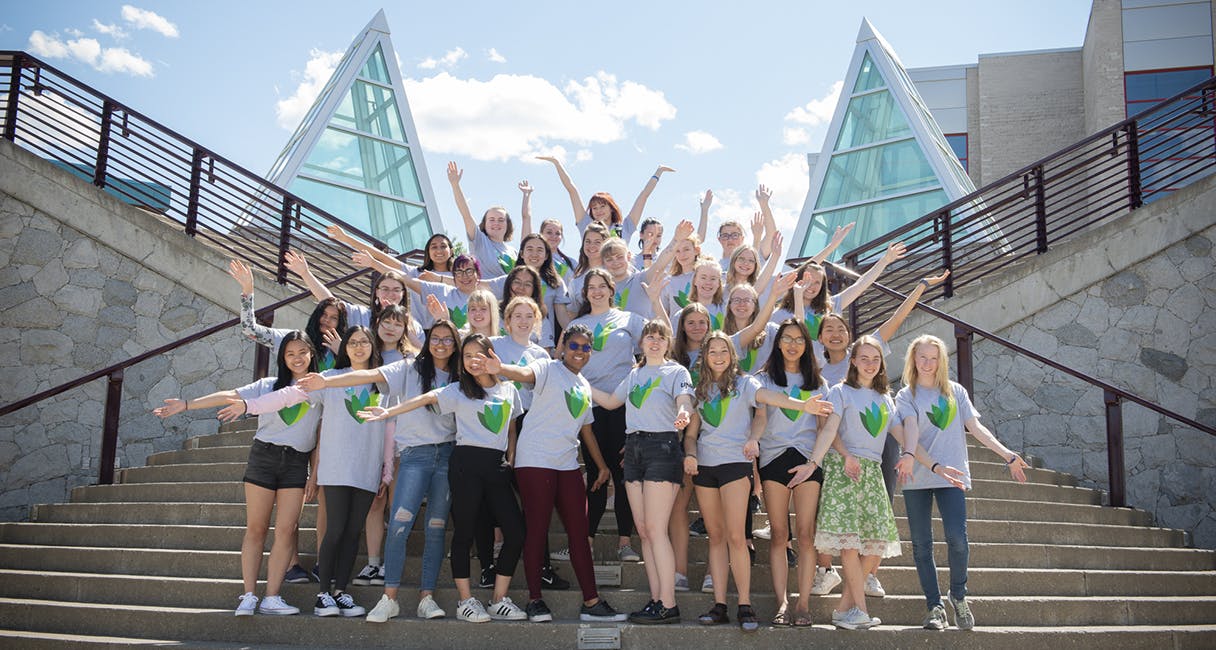
Enbridge invests more than US$20.4 million (C$28 million) in community-strengthening initiatives by partnering with nearly 4,400 organizations across the U.S. and Canada.
Strategic JV announcement with WhiteWater/I Squared Capital and MPLX positions Enbridge as a player in natural gas transportation from the Permian Basin to the Gulf Coast, with other announcements soon following.


Enbridge starts construction on the 815 MW Sequoia Solar Project, its largest solar farm to date, near Abilene, TX, with power to be purchased by AT&T and Toyota.
2025
36 First Nations in British Columbia make a historic C$715M investment in Enbridge's Westcoast natural gas system.


Enbridge releases its Indigenous Reconciliation Action Plan (IRAP) Refresh, reaffirming our commitment to engagement and economic partnerships.
Enbridge commissions its first solar power project in Texas, Orange Grove Solar, near Corpus Christi.

Looking Ahead
Enbridge is driving continuous improvement in safety and reliability for a goal of zero incidents, injuries and occupational injuries, and implementation of robust cyber defense programs.

Our sustainability goals
The people of Enbridge continue to be the backbone of our company as we look ahead to meeting our sustainability goals and helping to create a durable energy evolution.
Focus on board composition that reflects a variety of skills, experiences and perspectives.
Foster a more inclusive, high-performance workforce that better reflects the communities where we operate, and supports business outcomes.
Interim reduction of GHG emissions intensity by 35% by the year 2030.
Net-zero greenhouse gas emissions by the year 2050.


